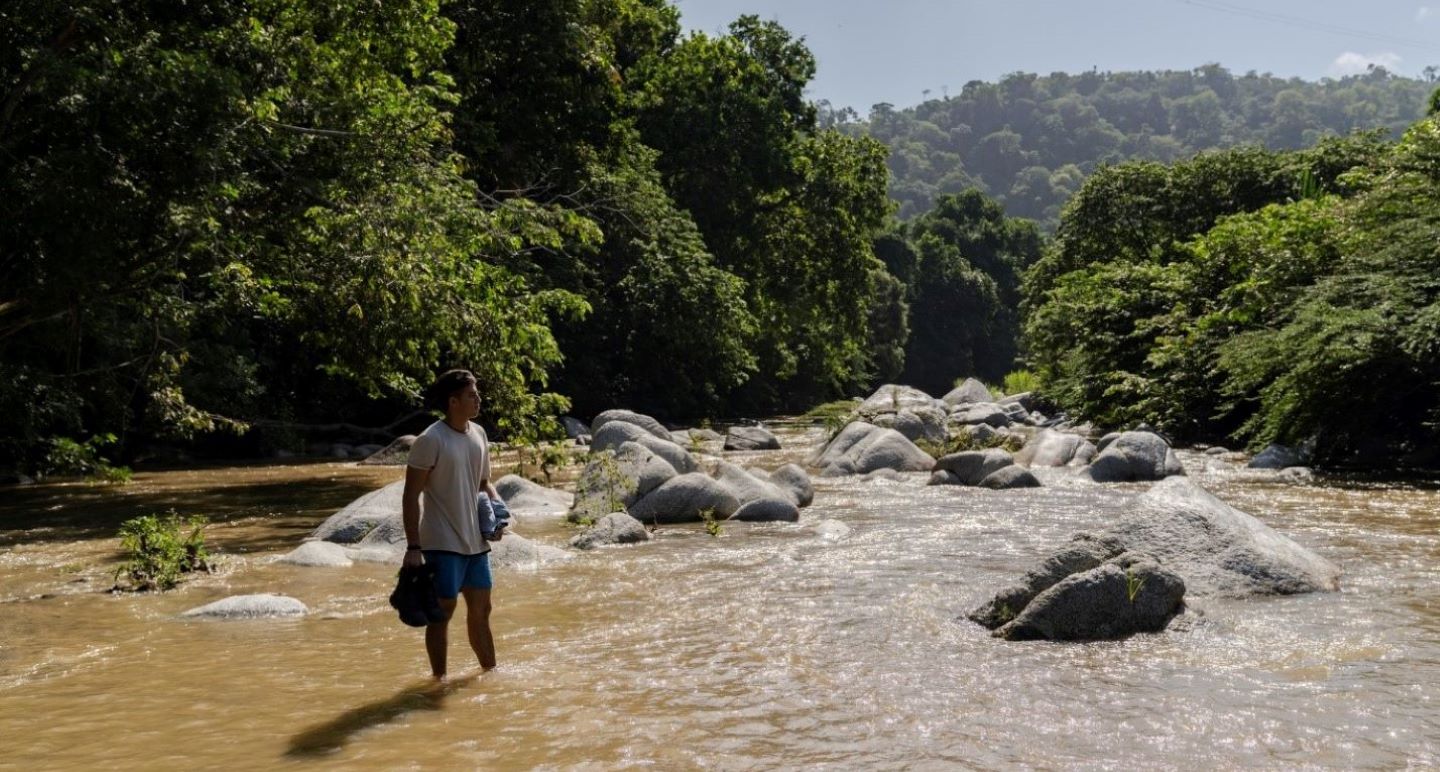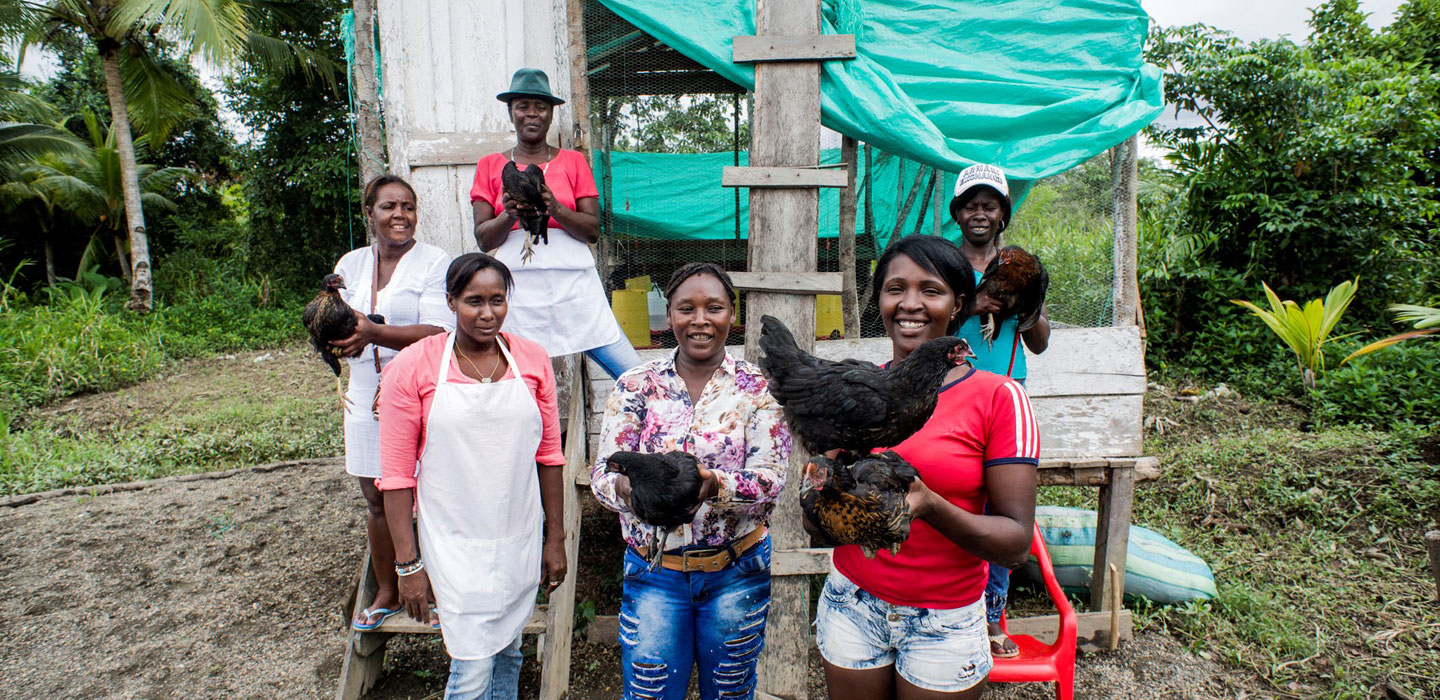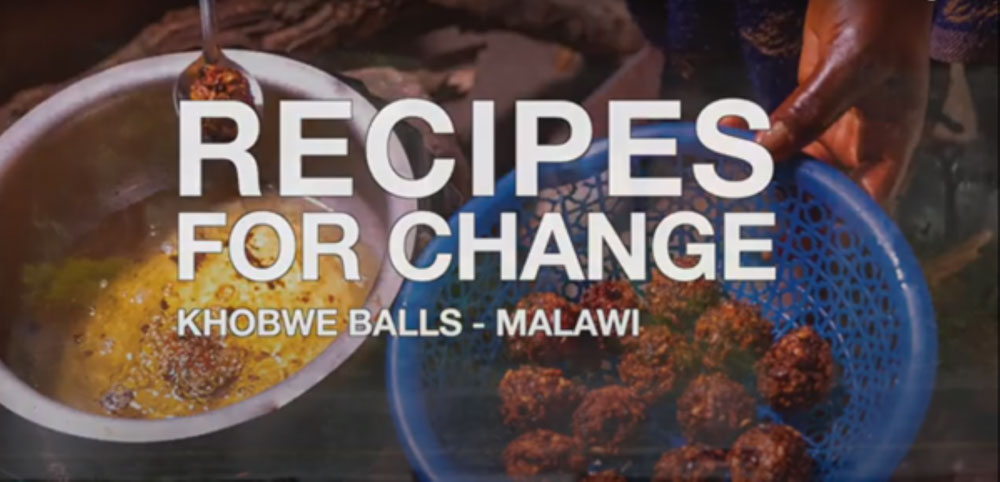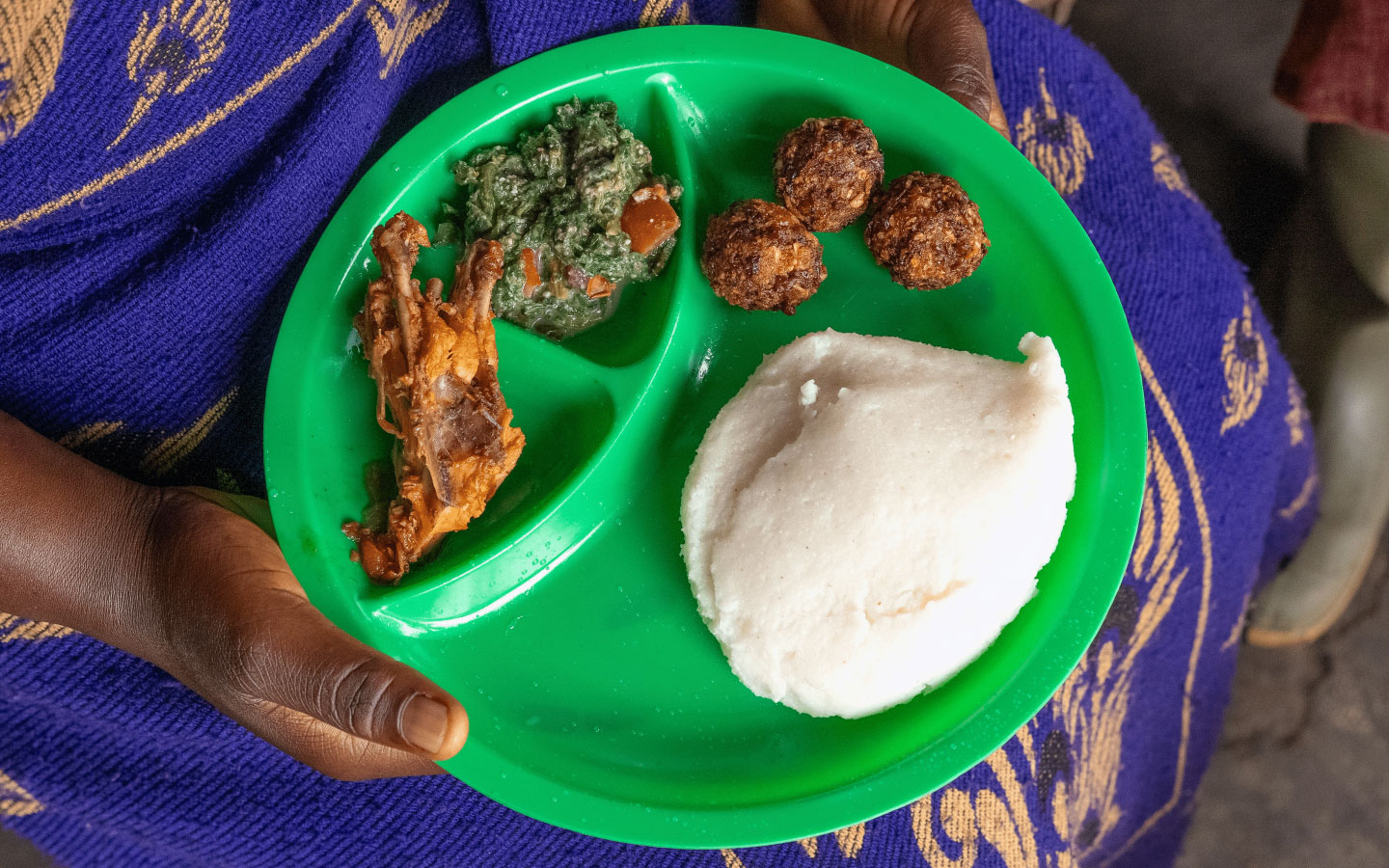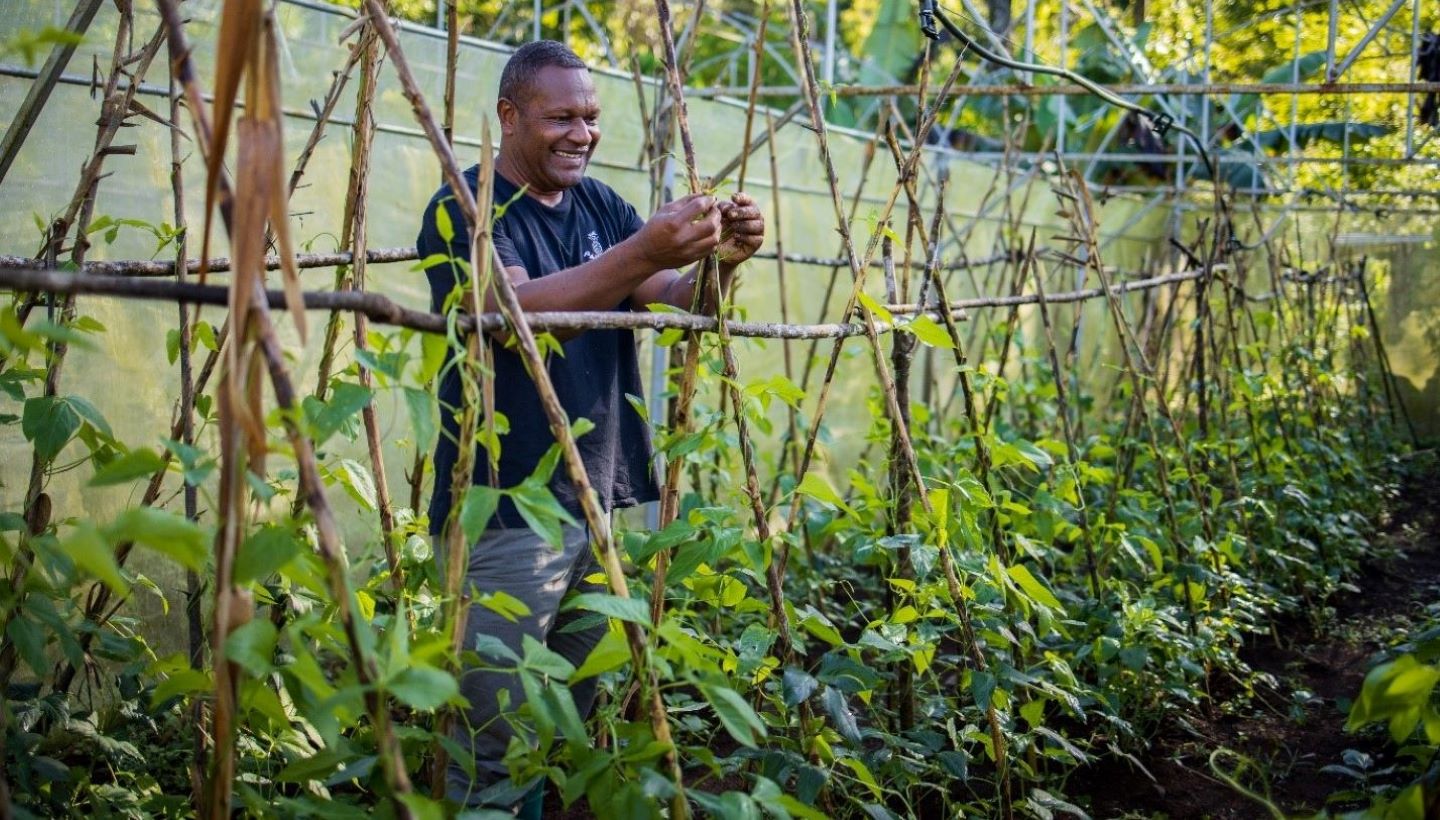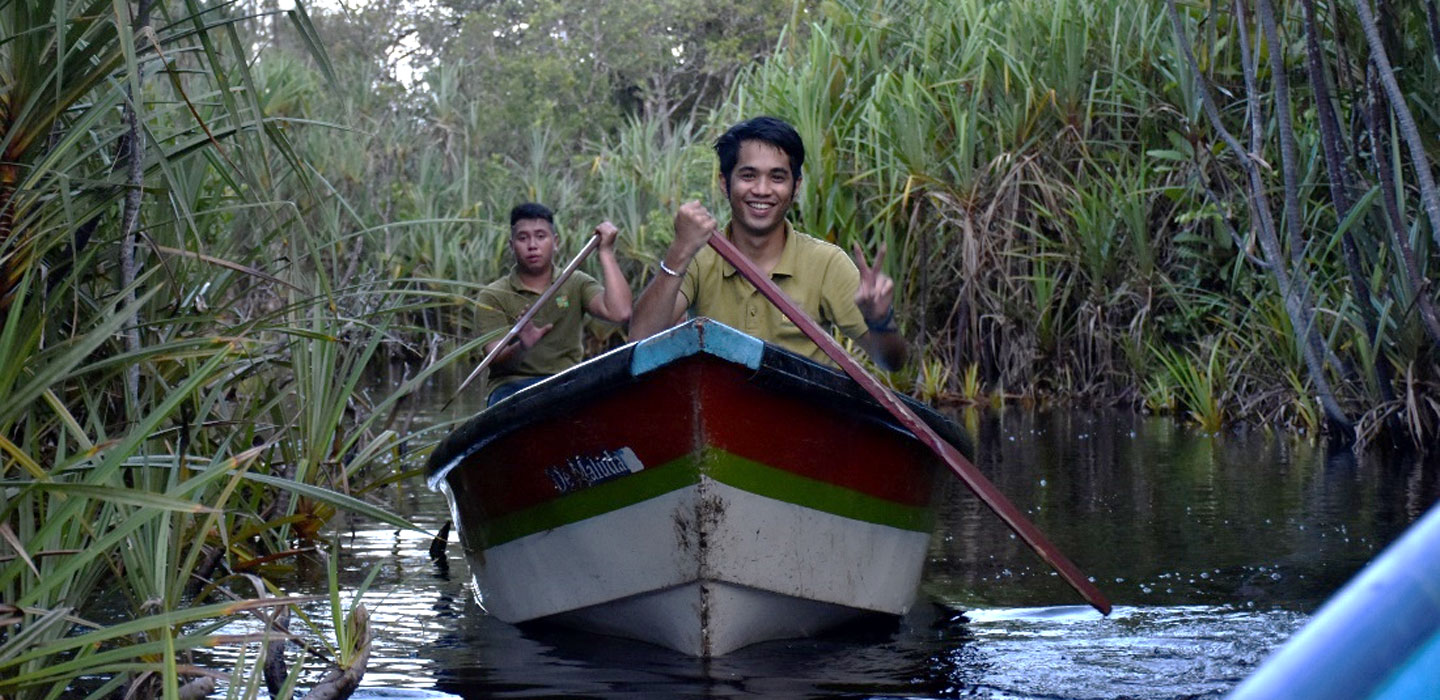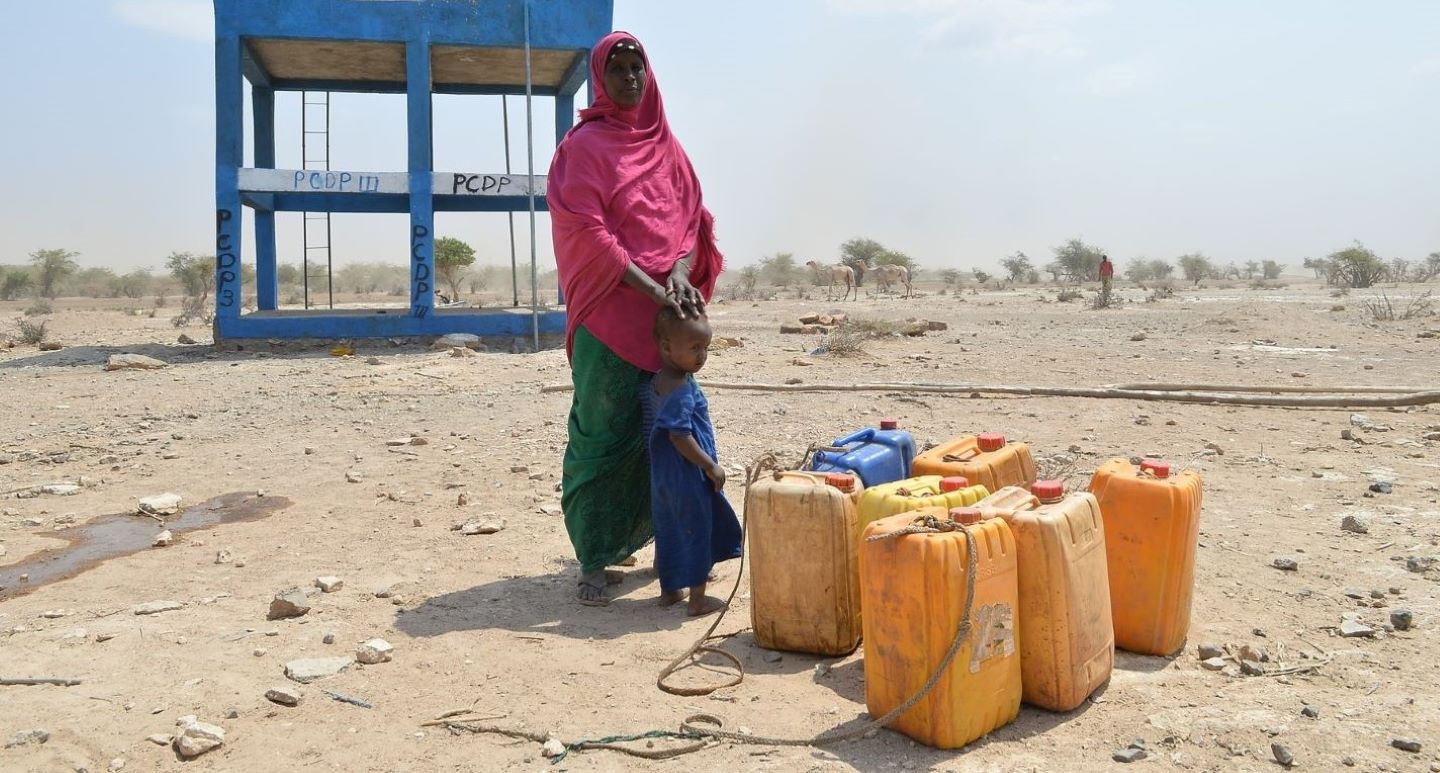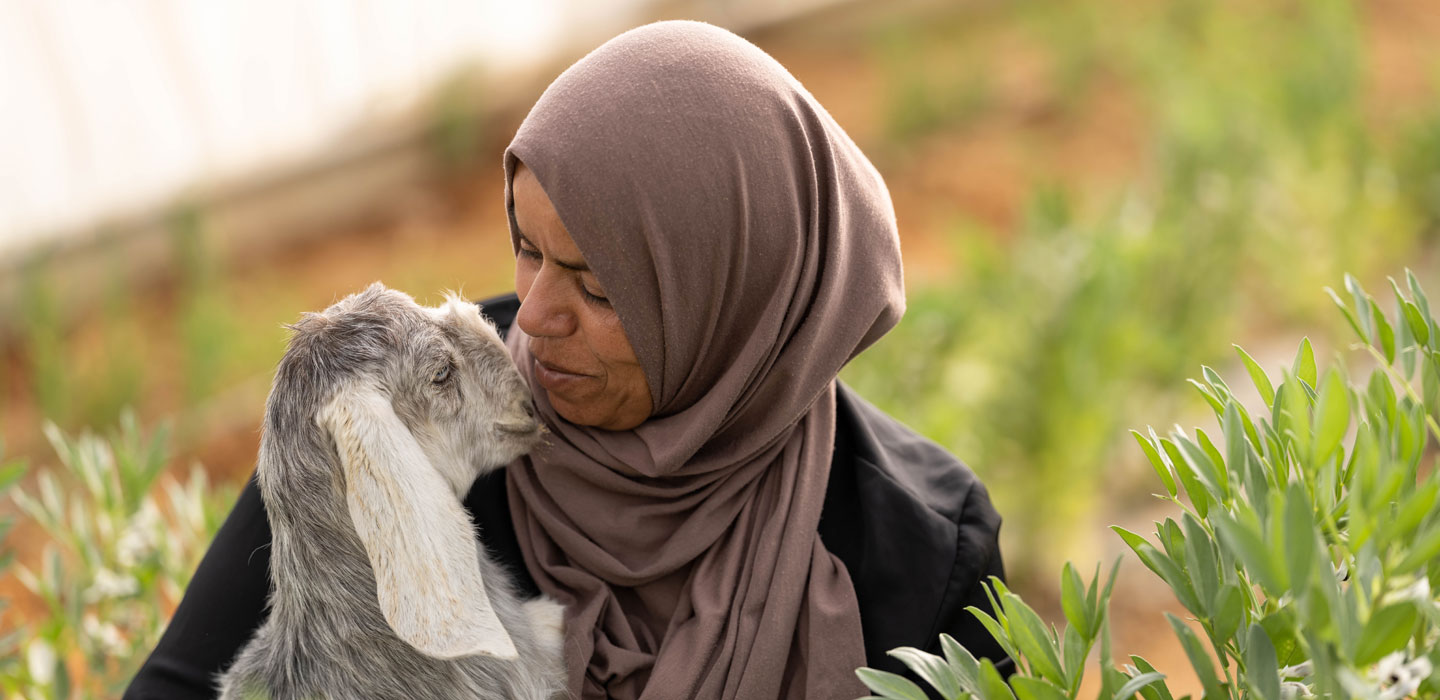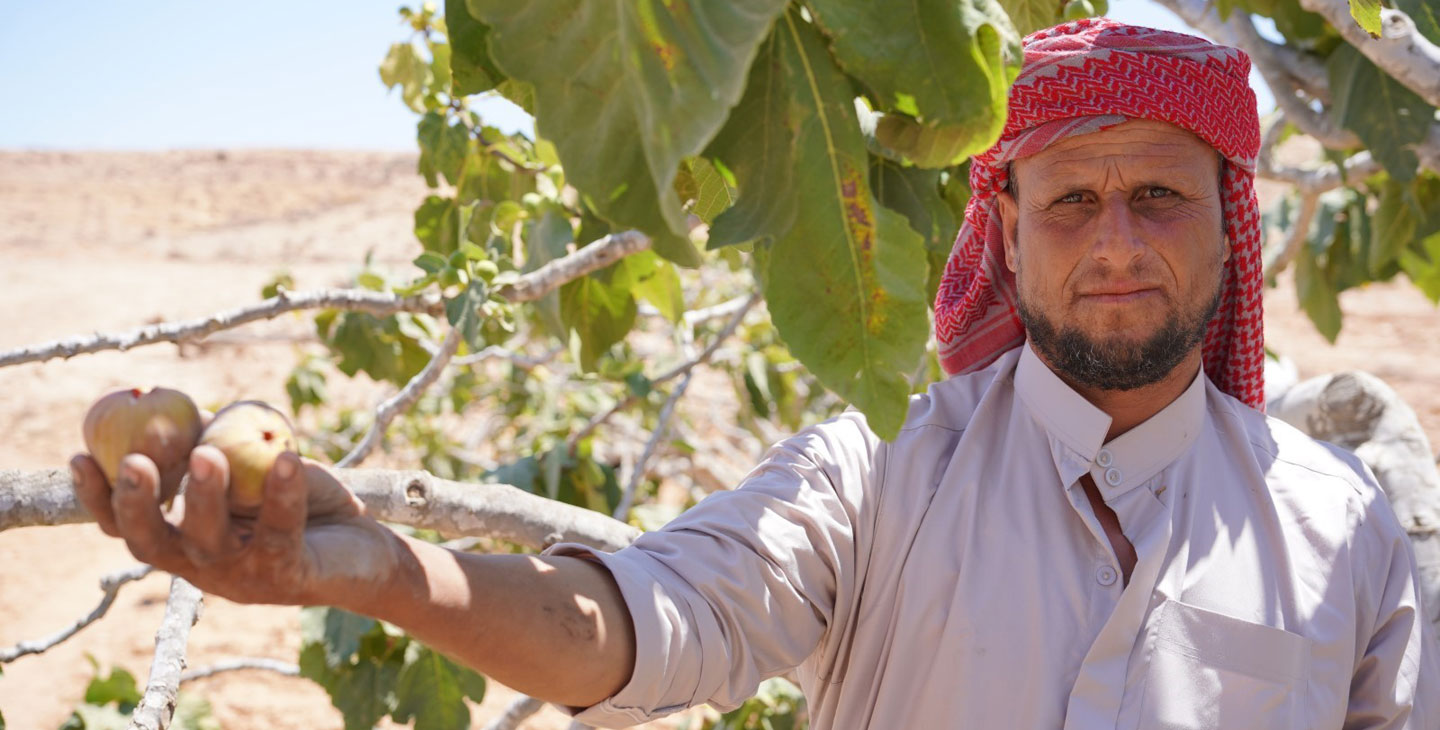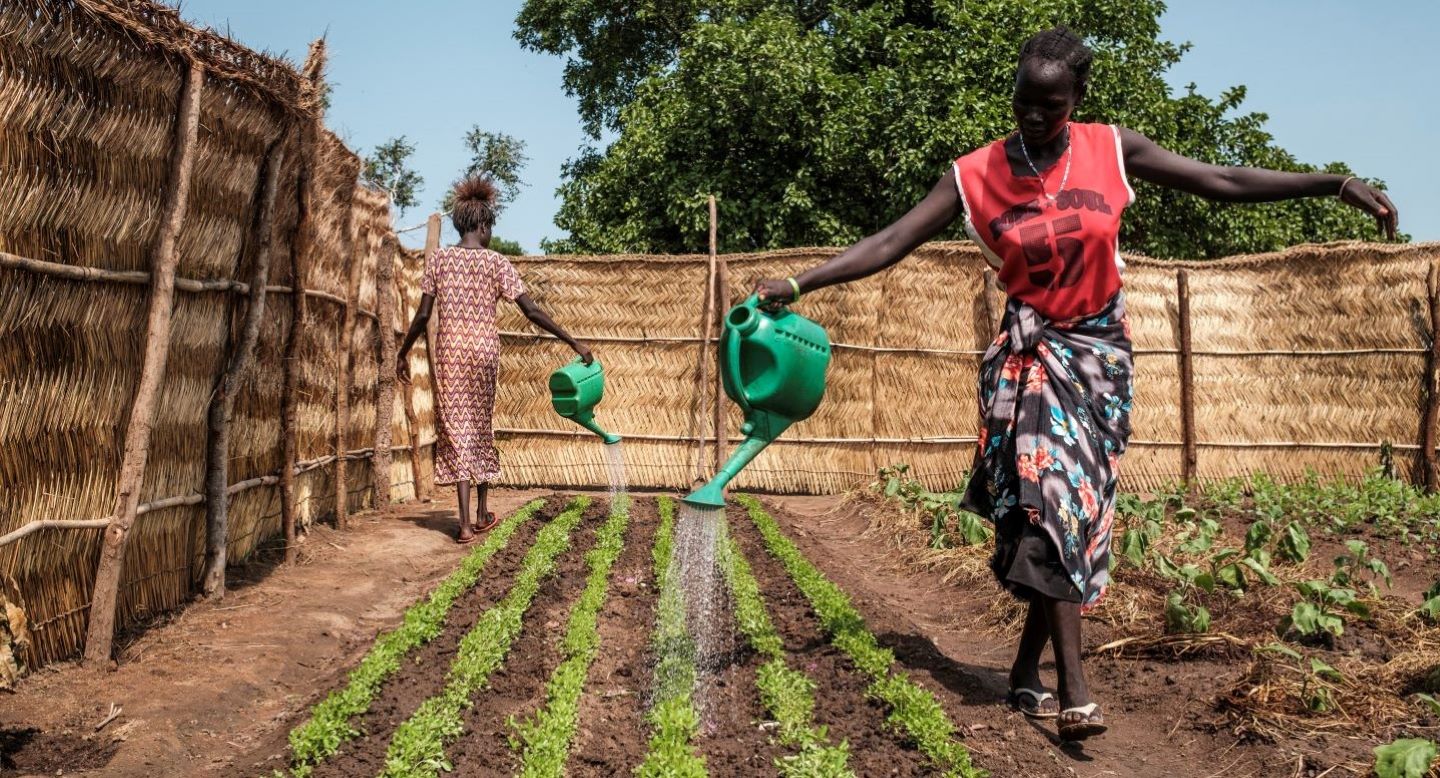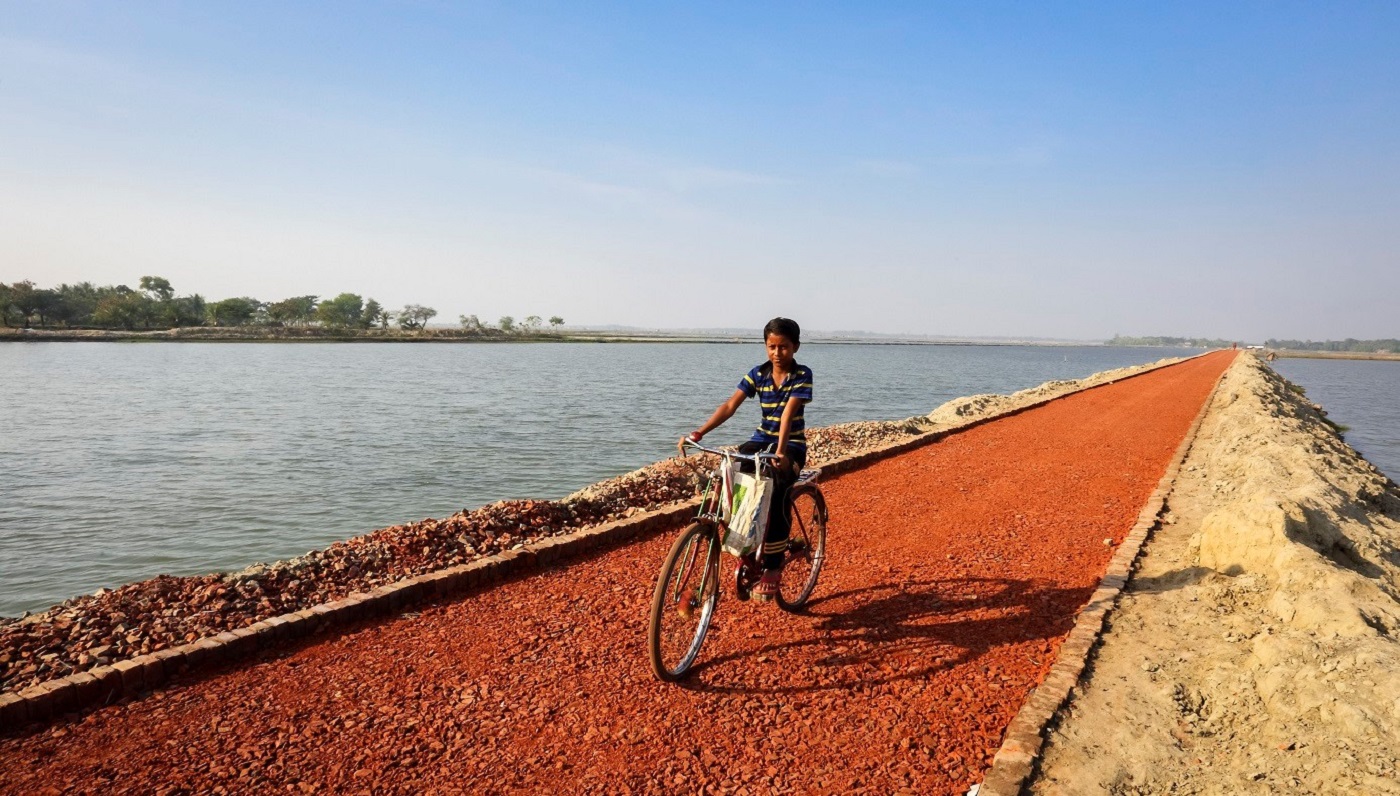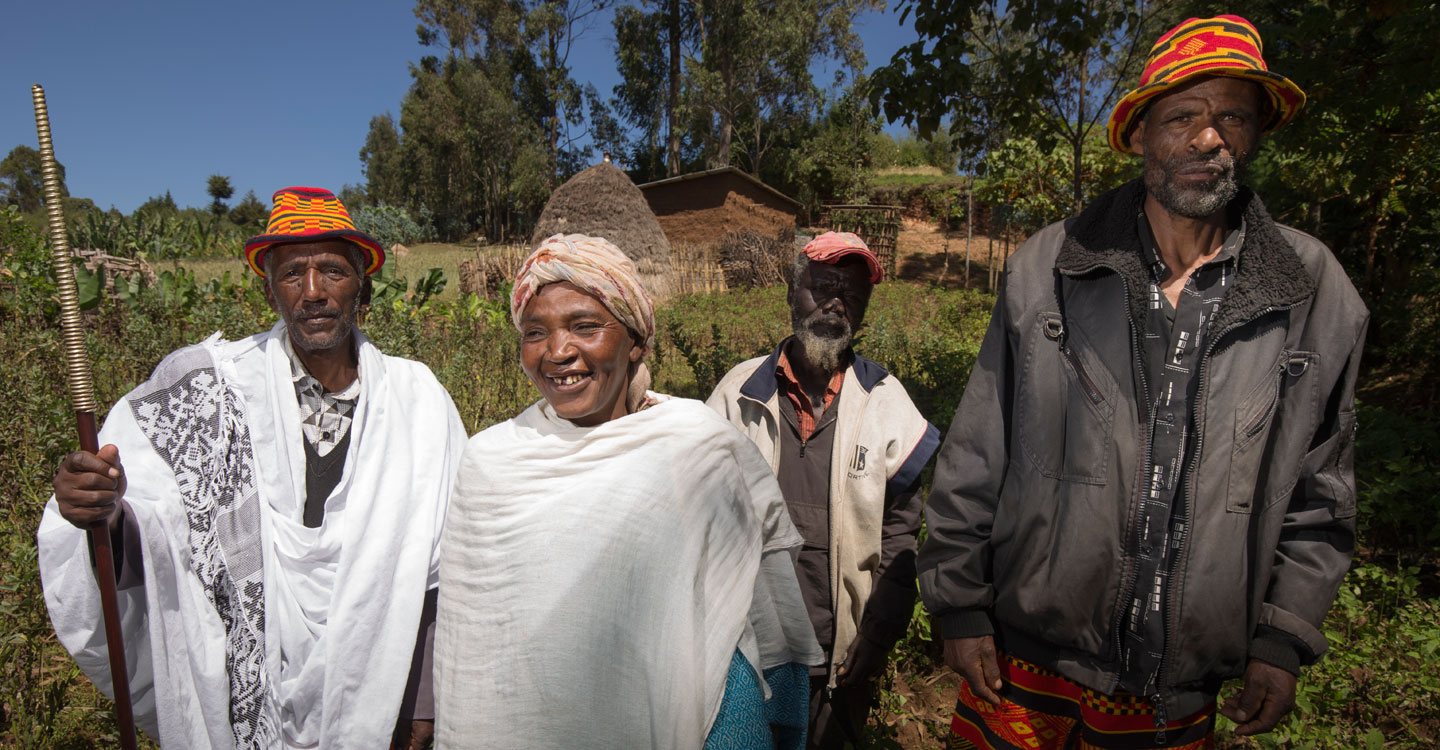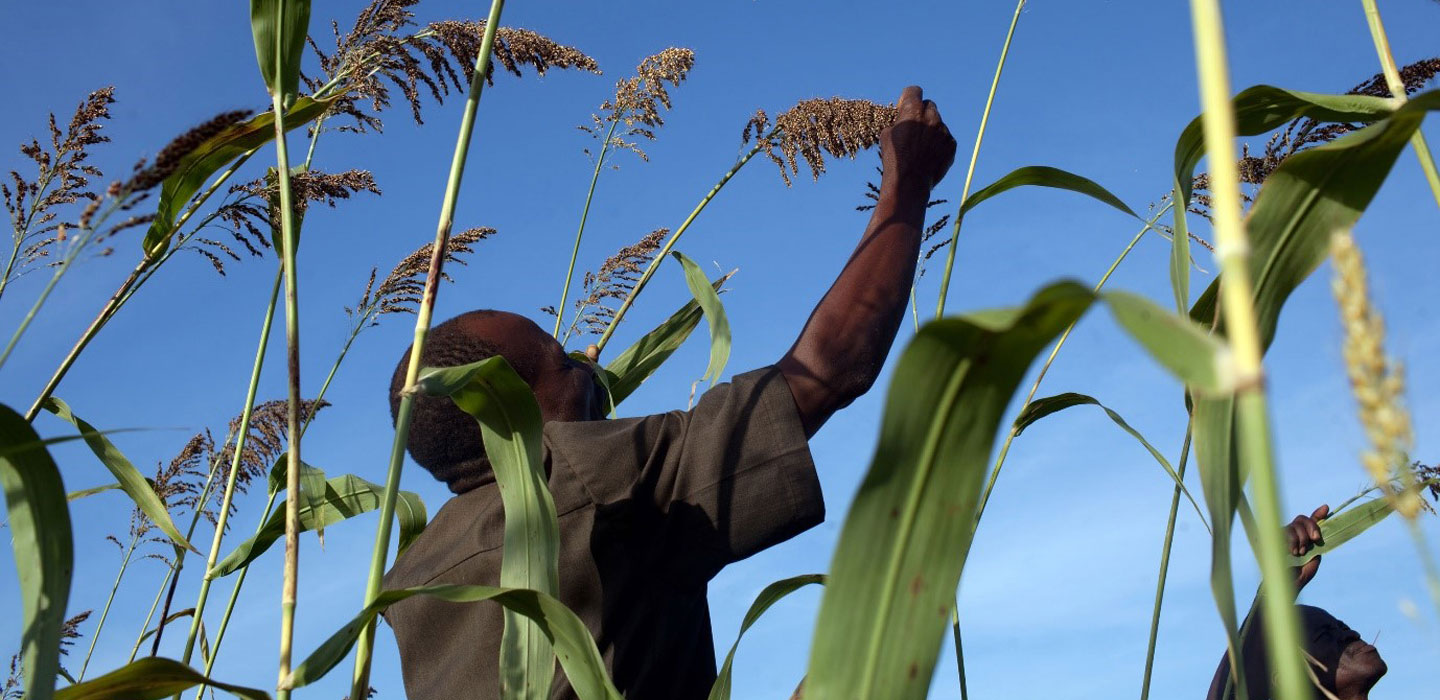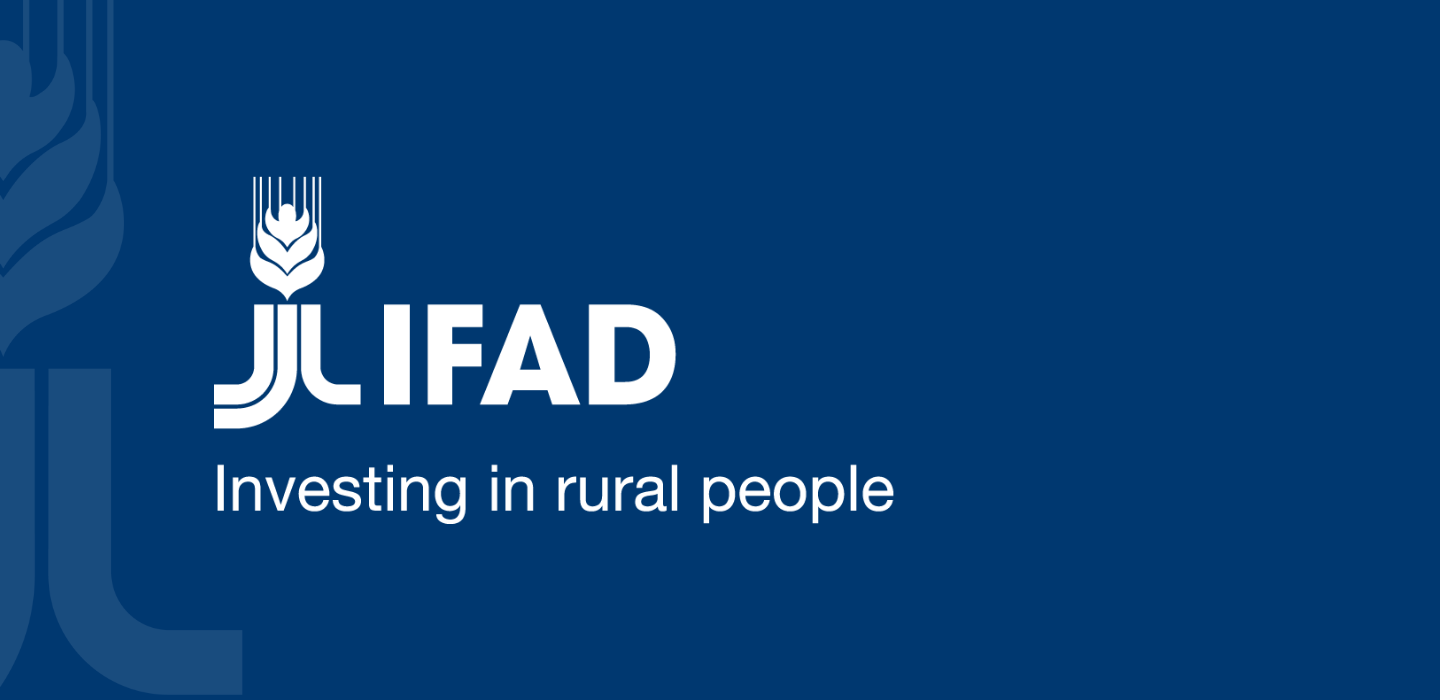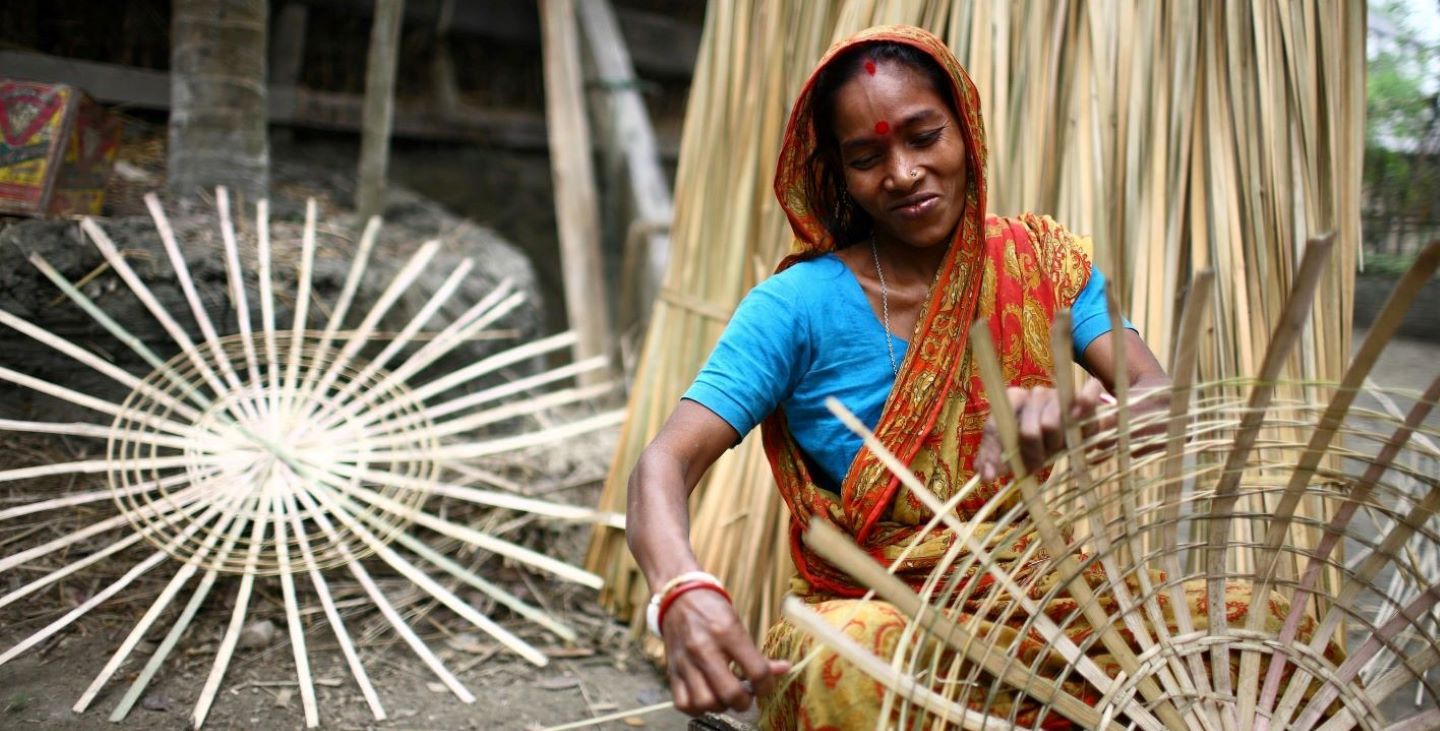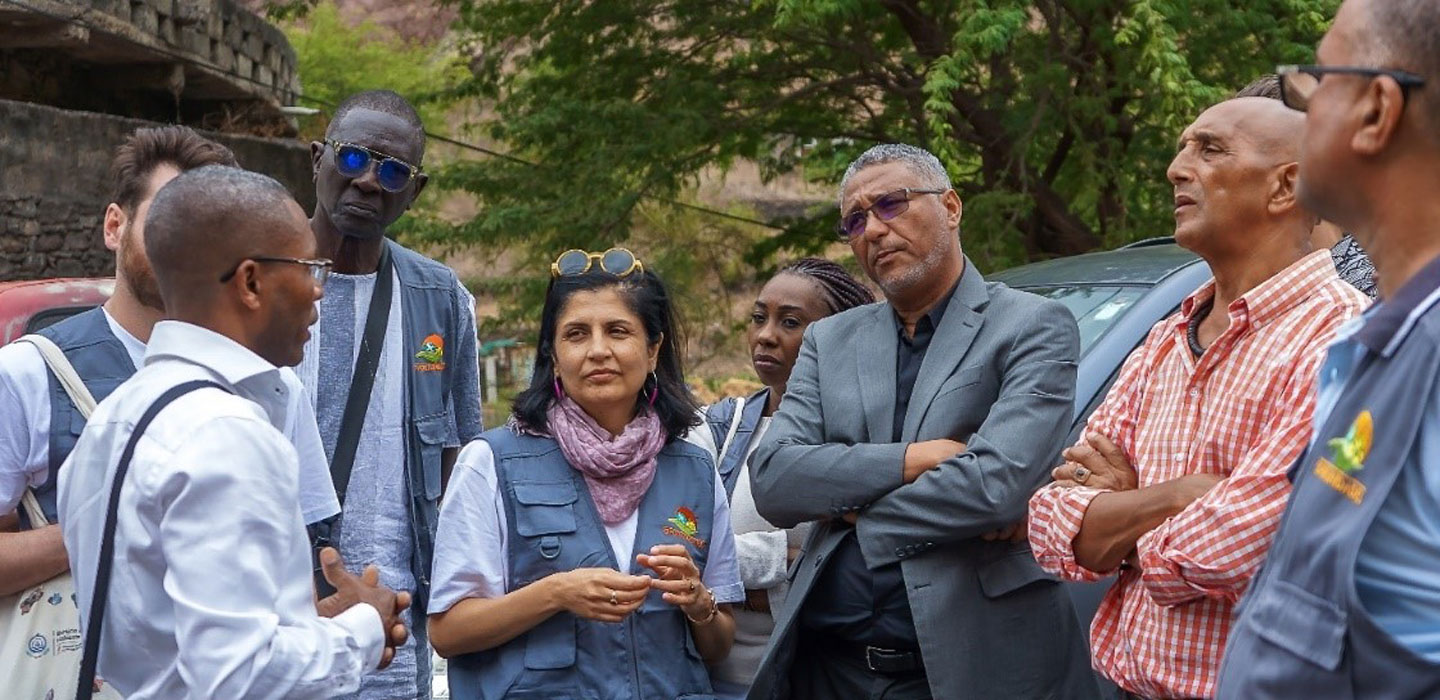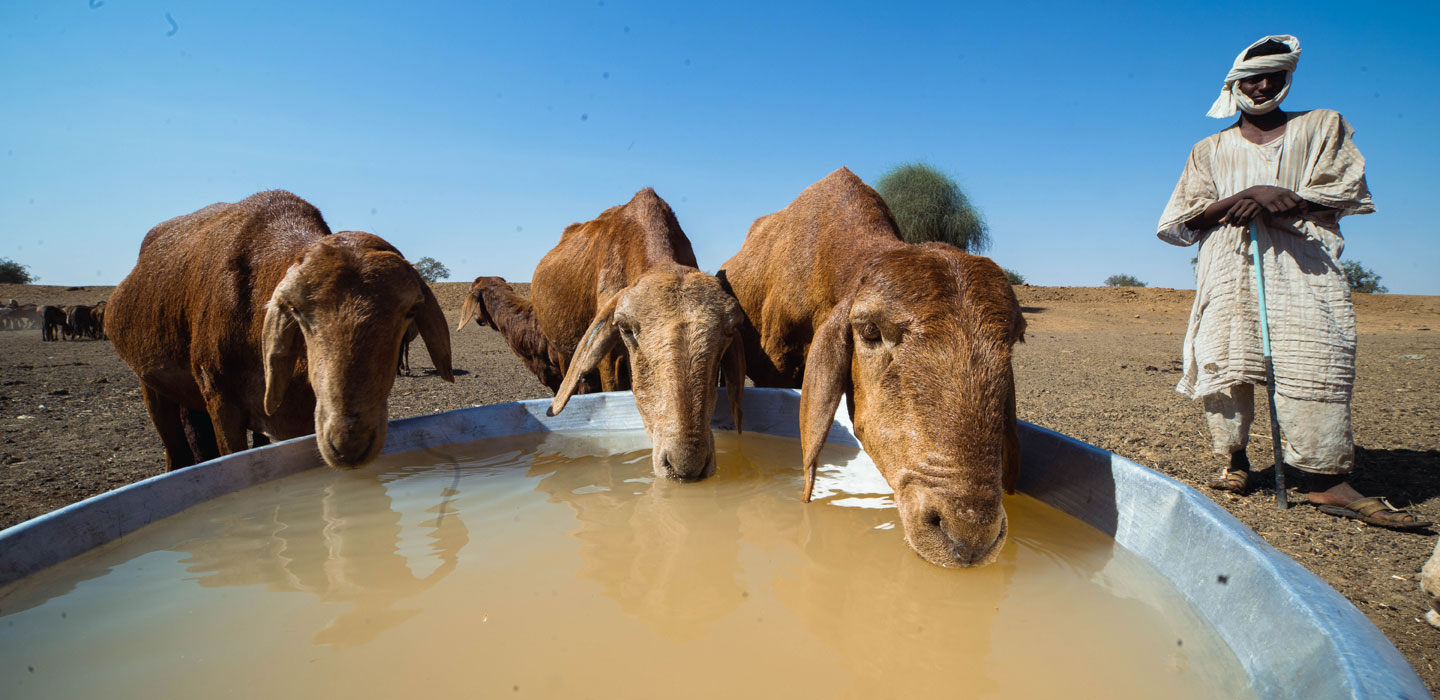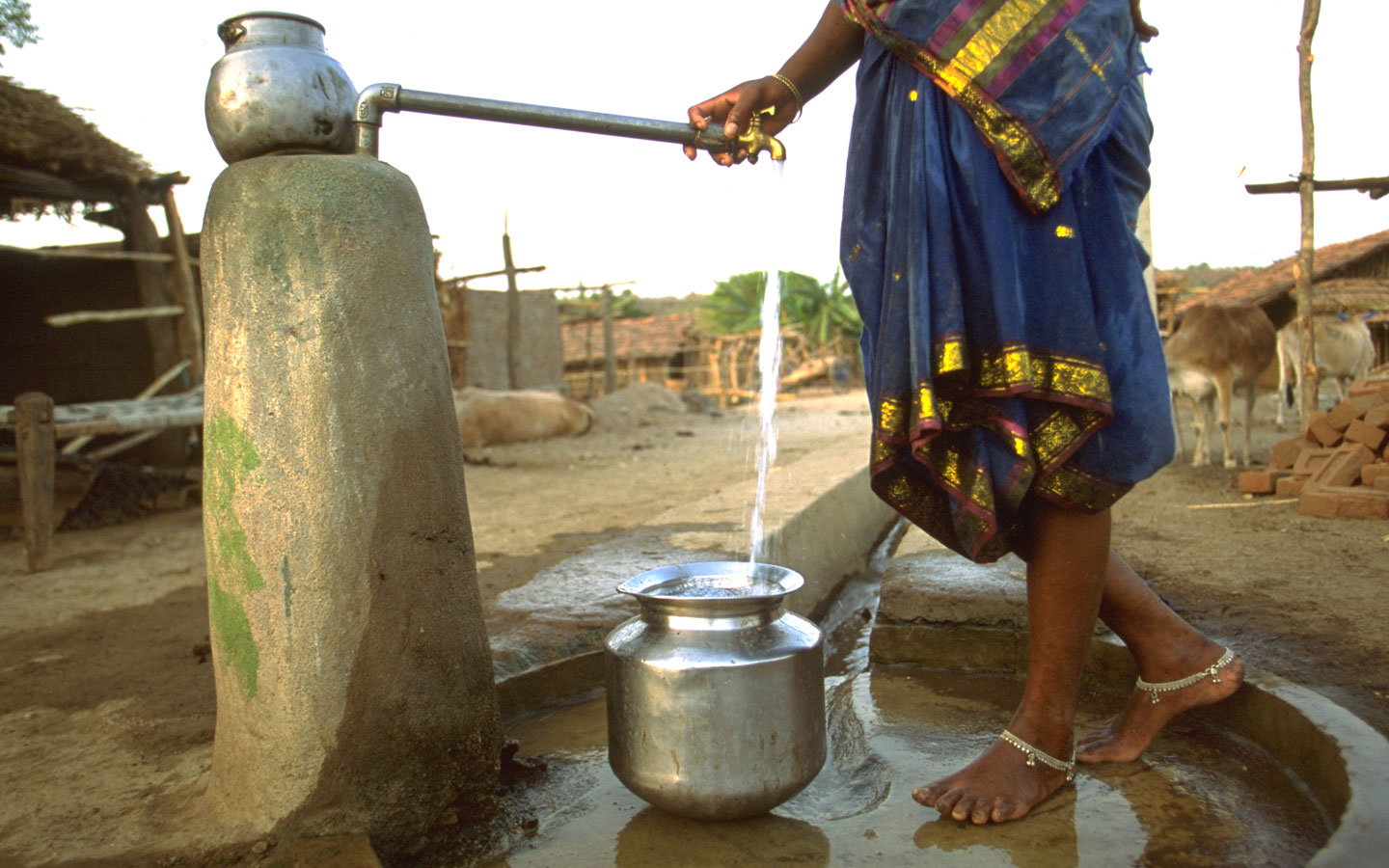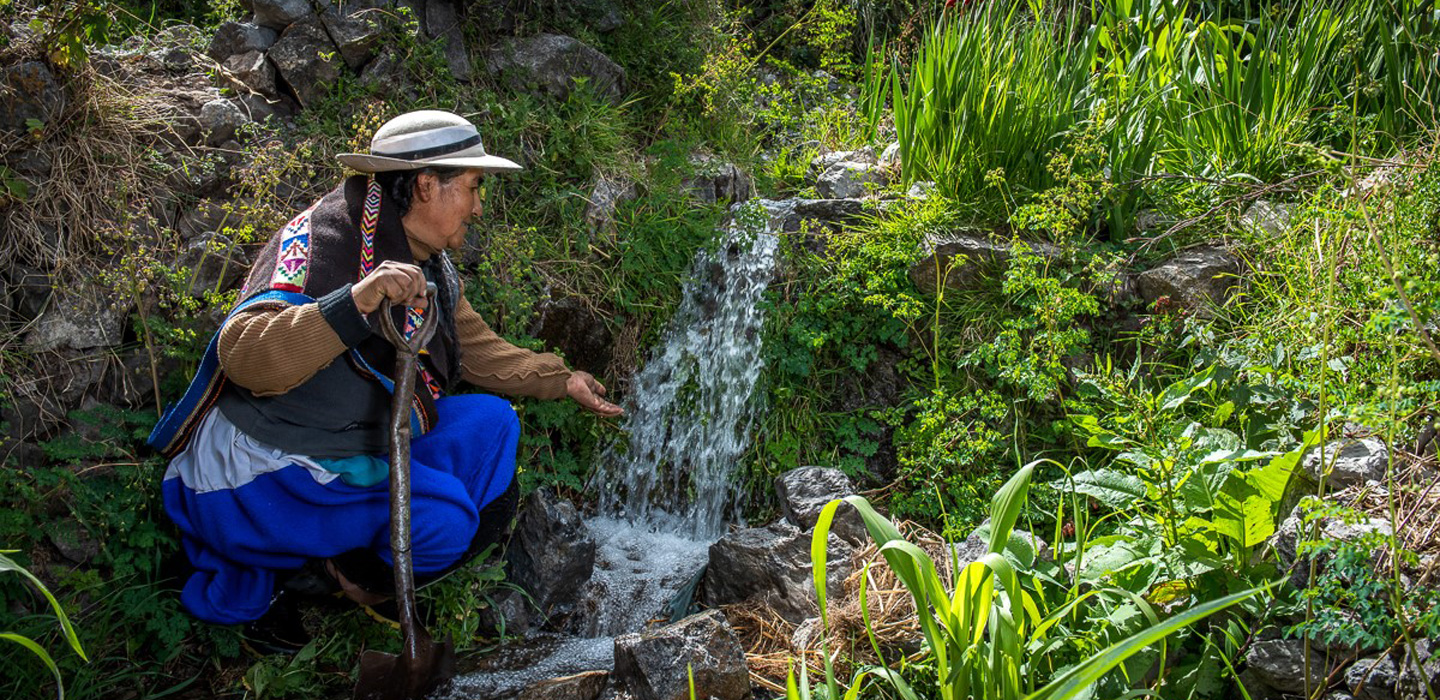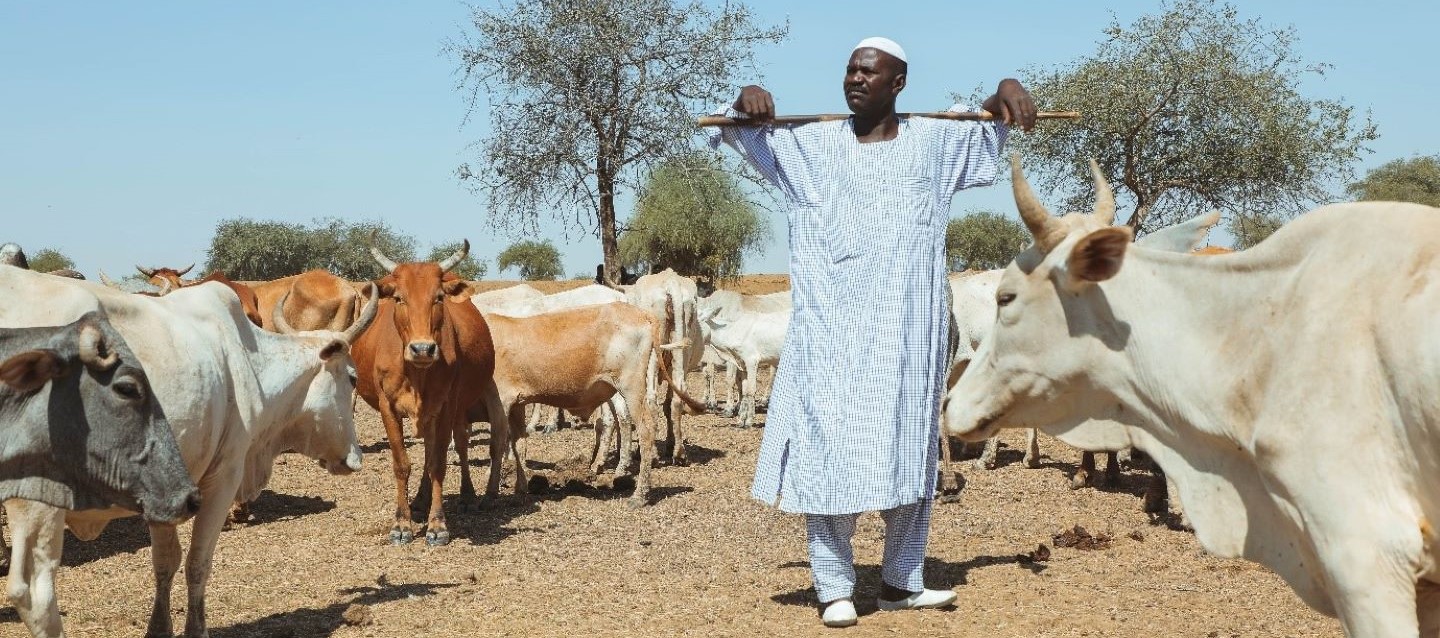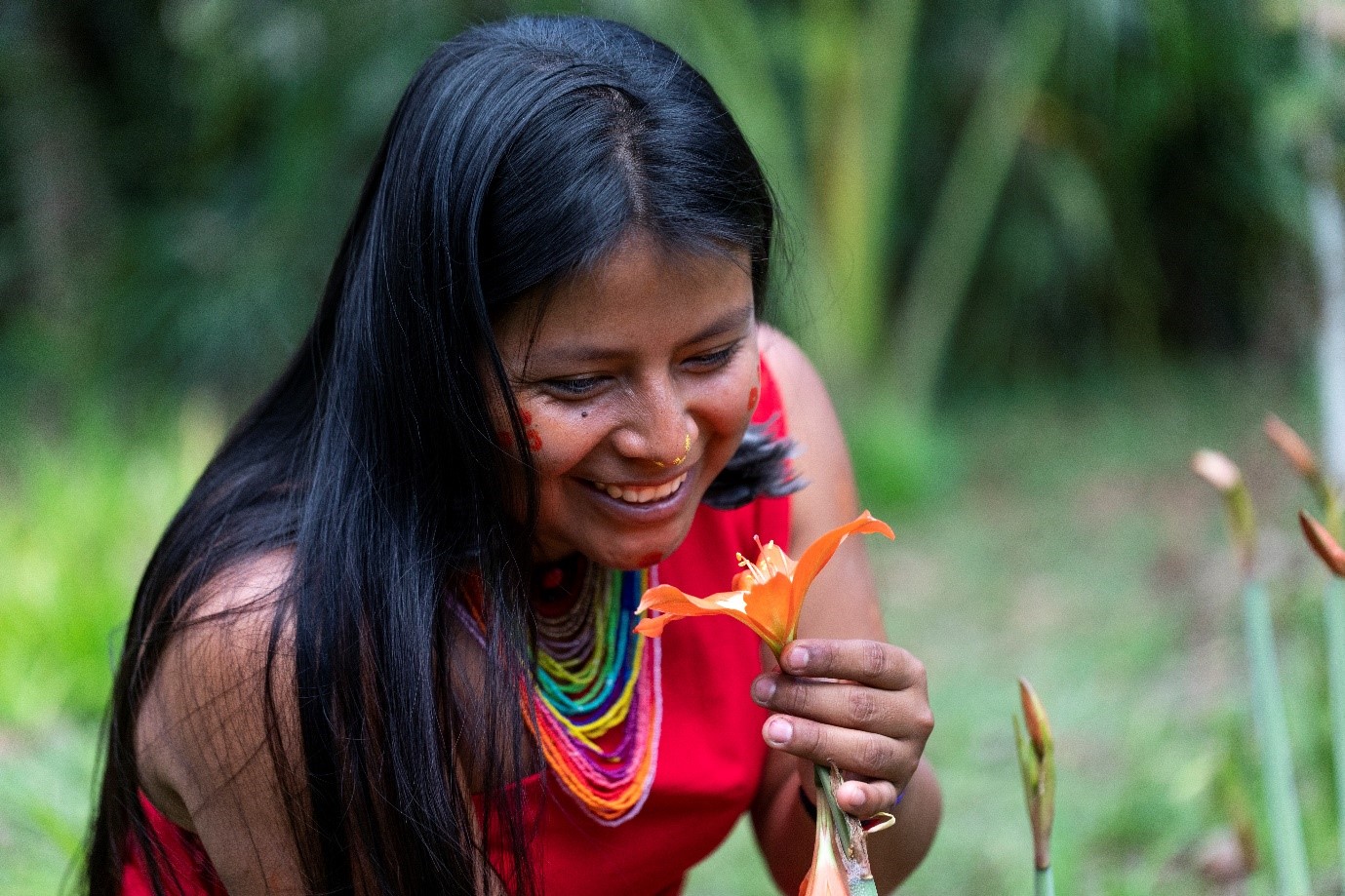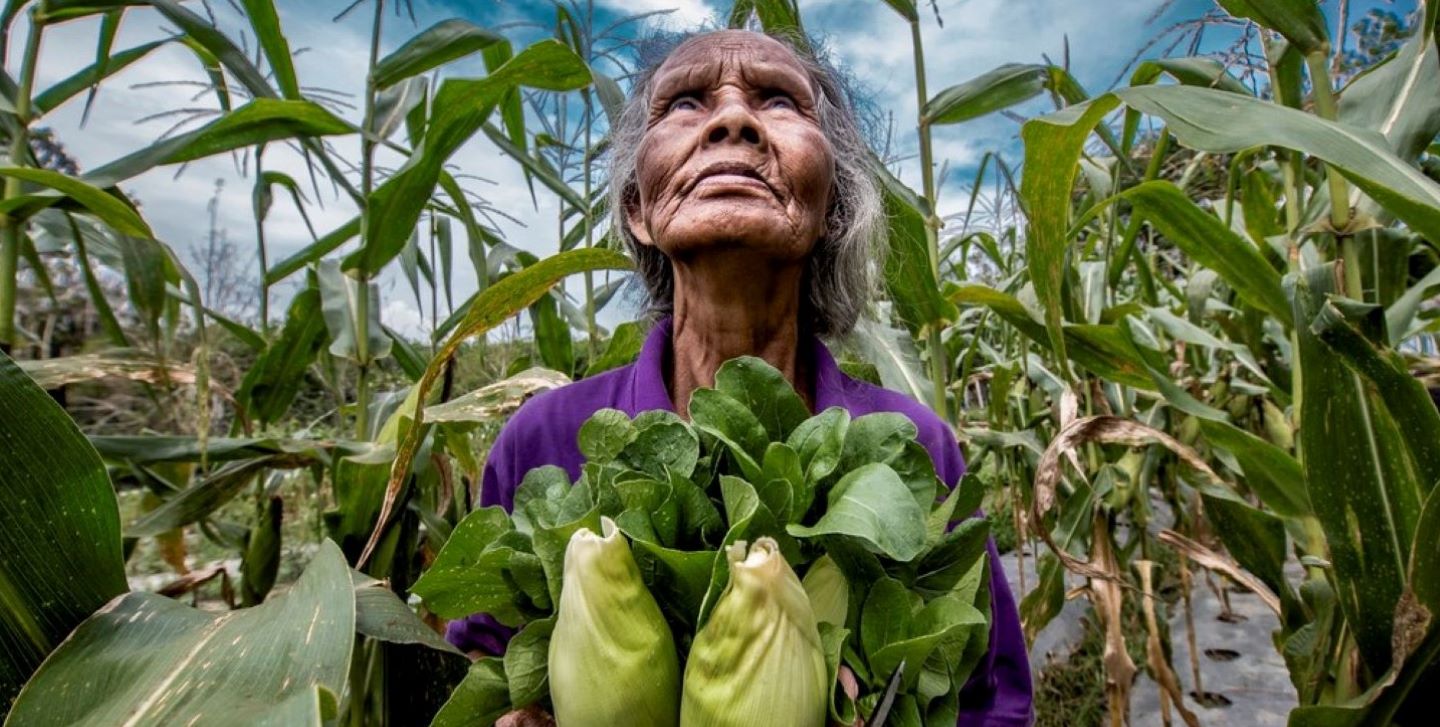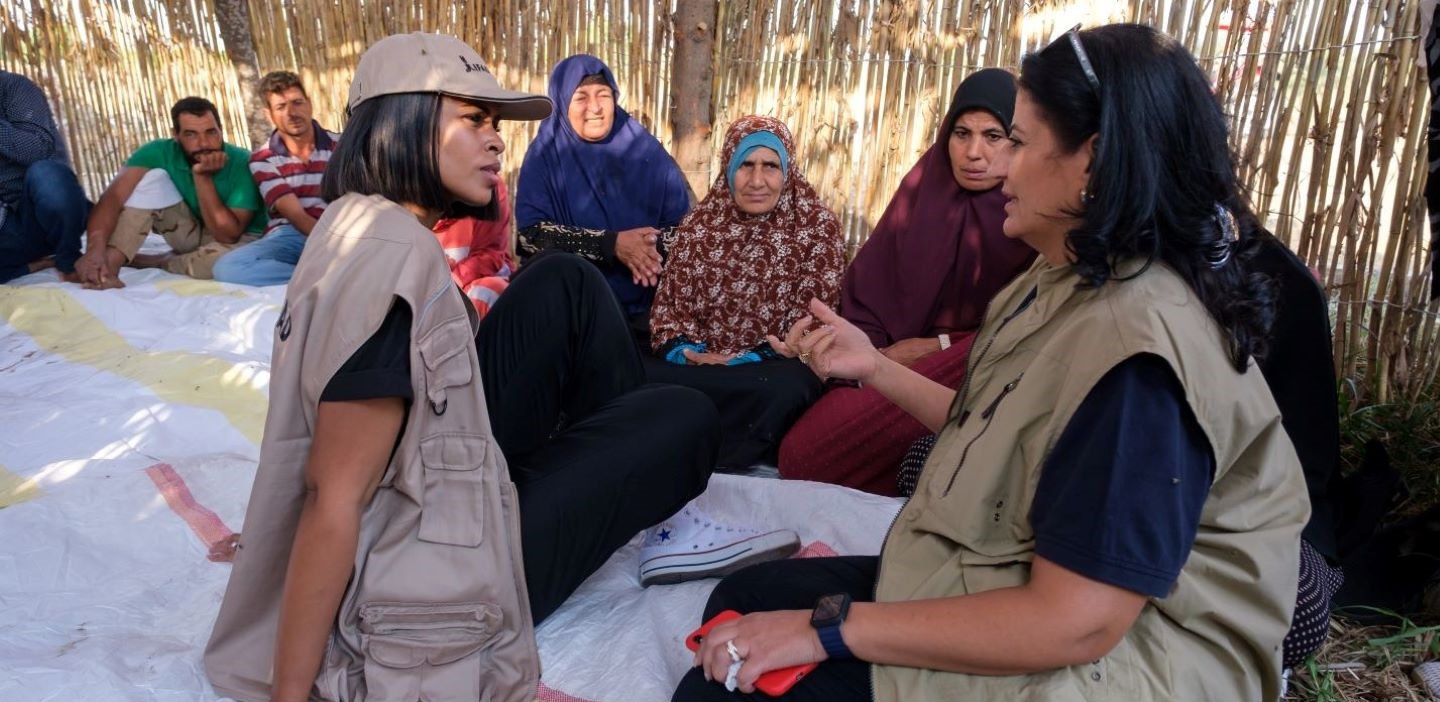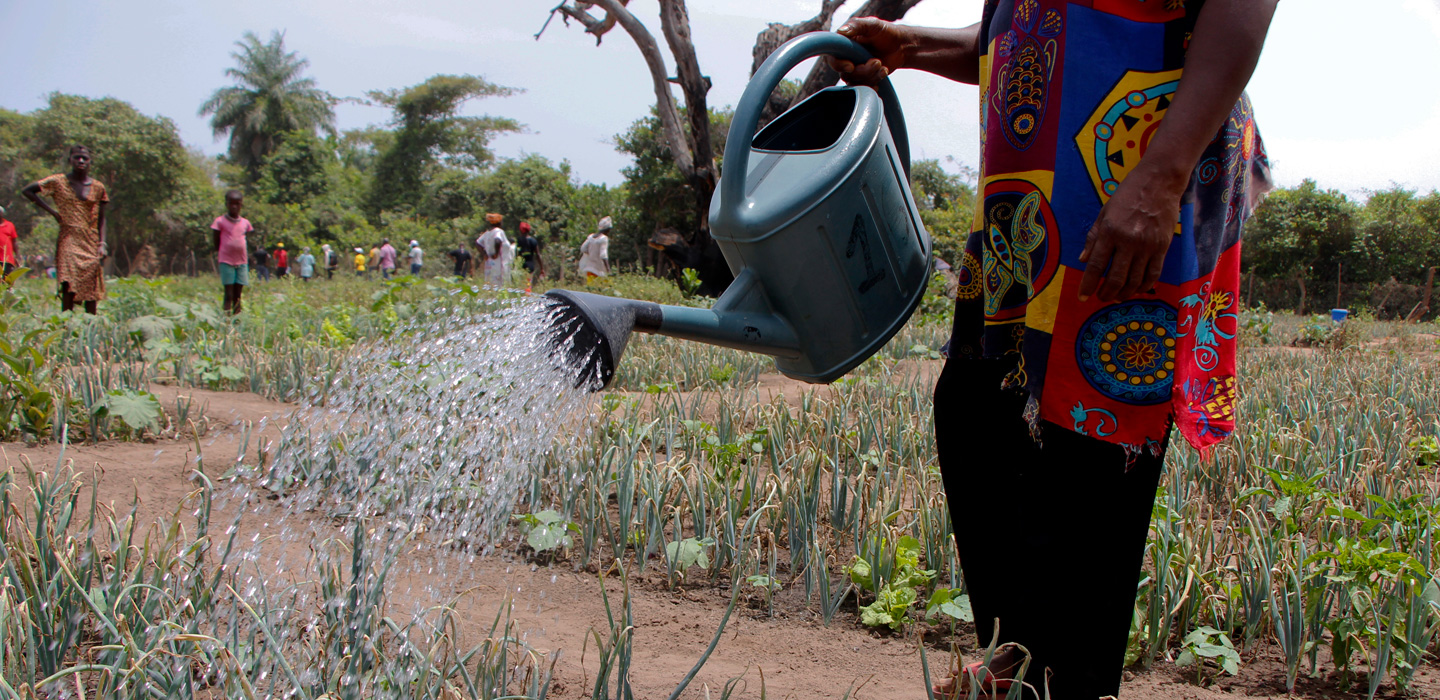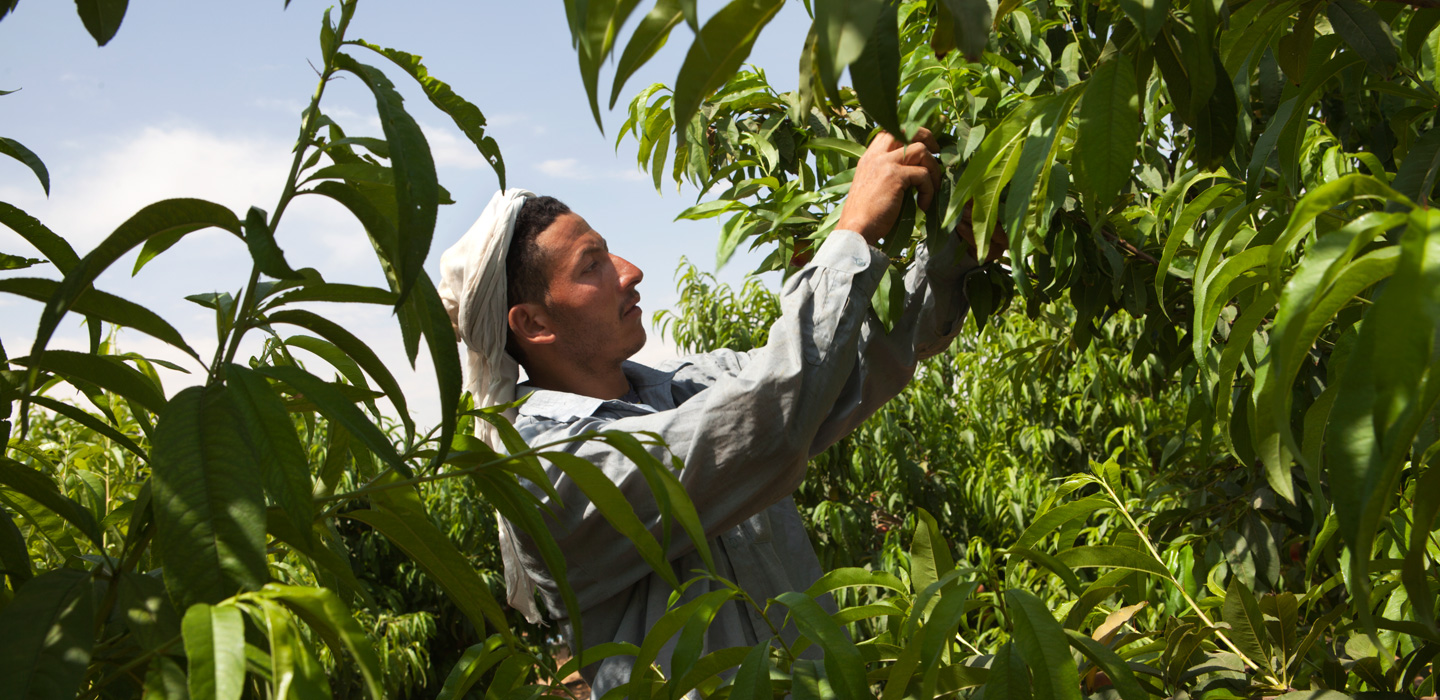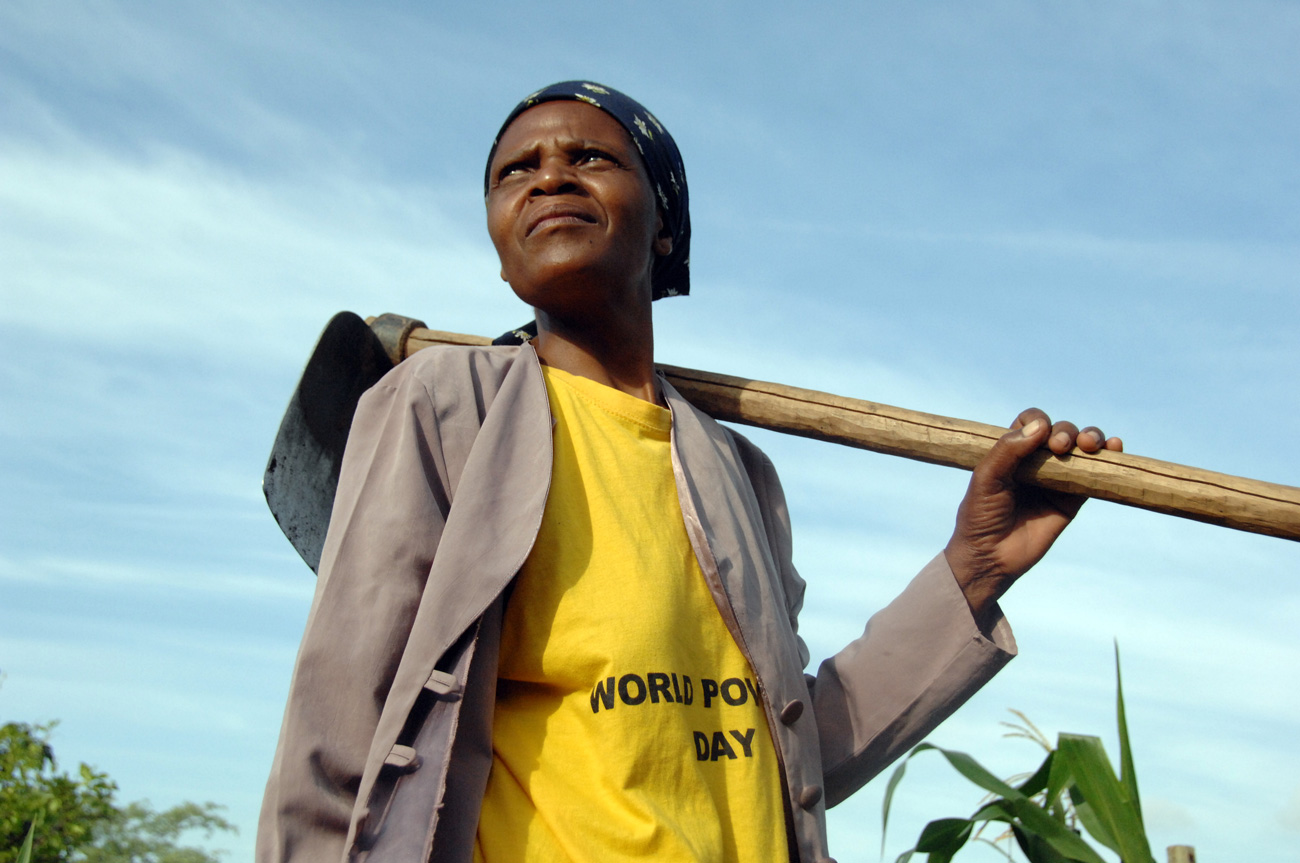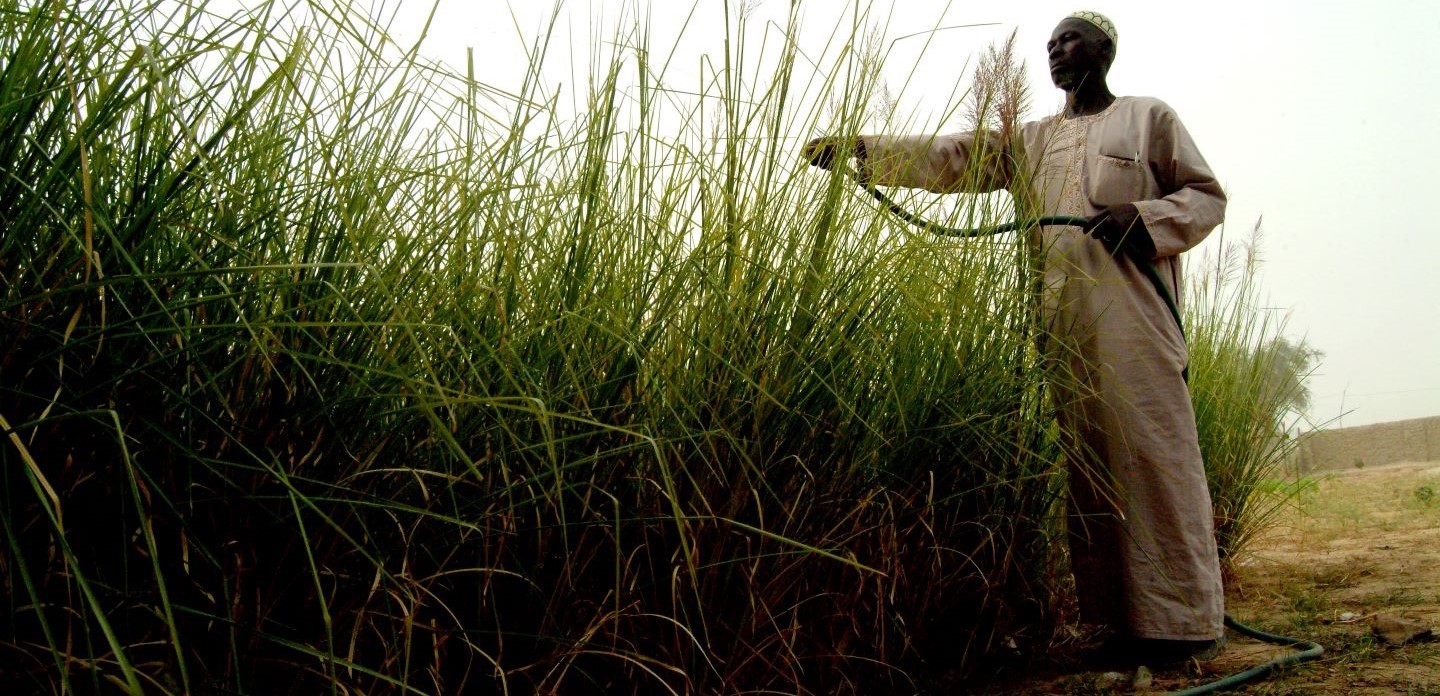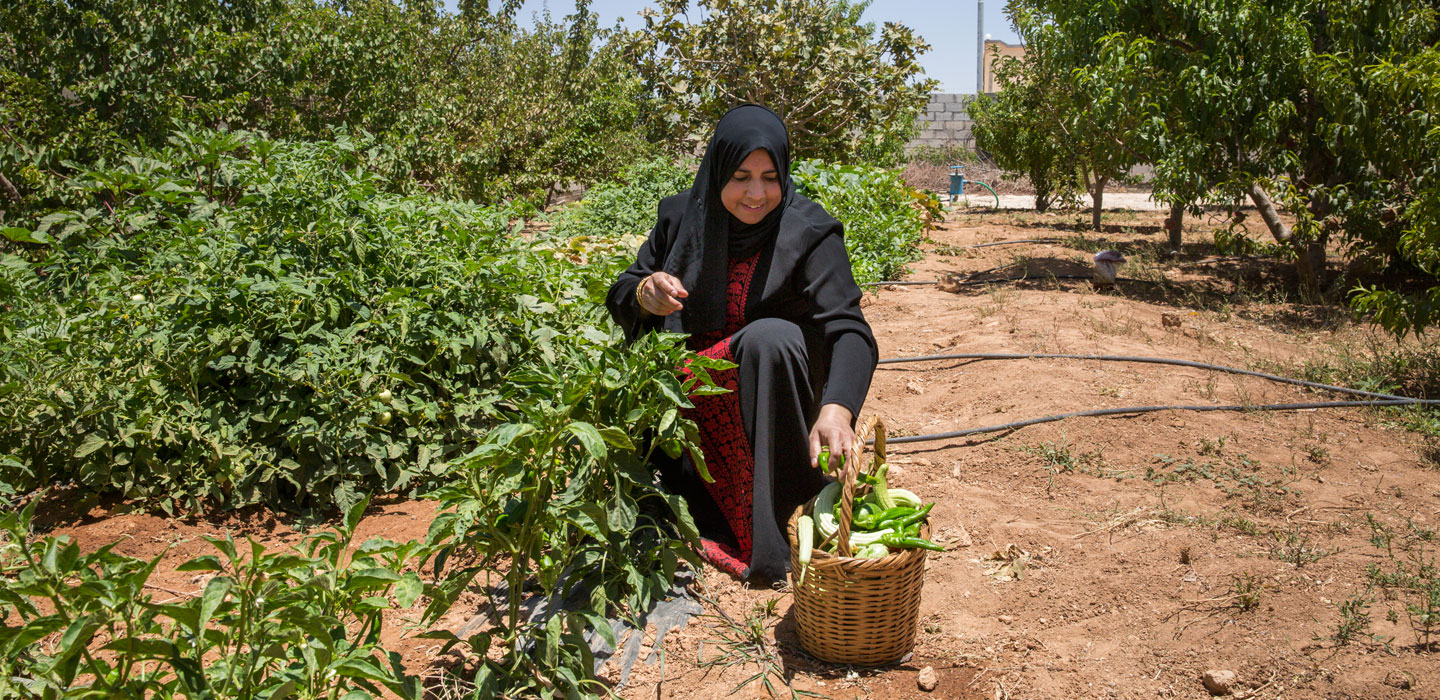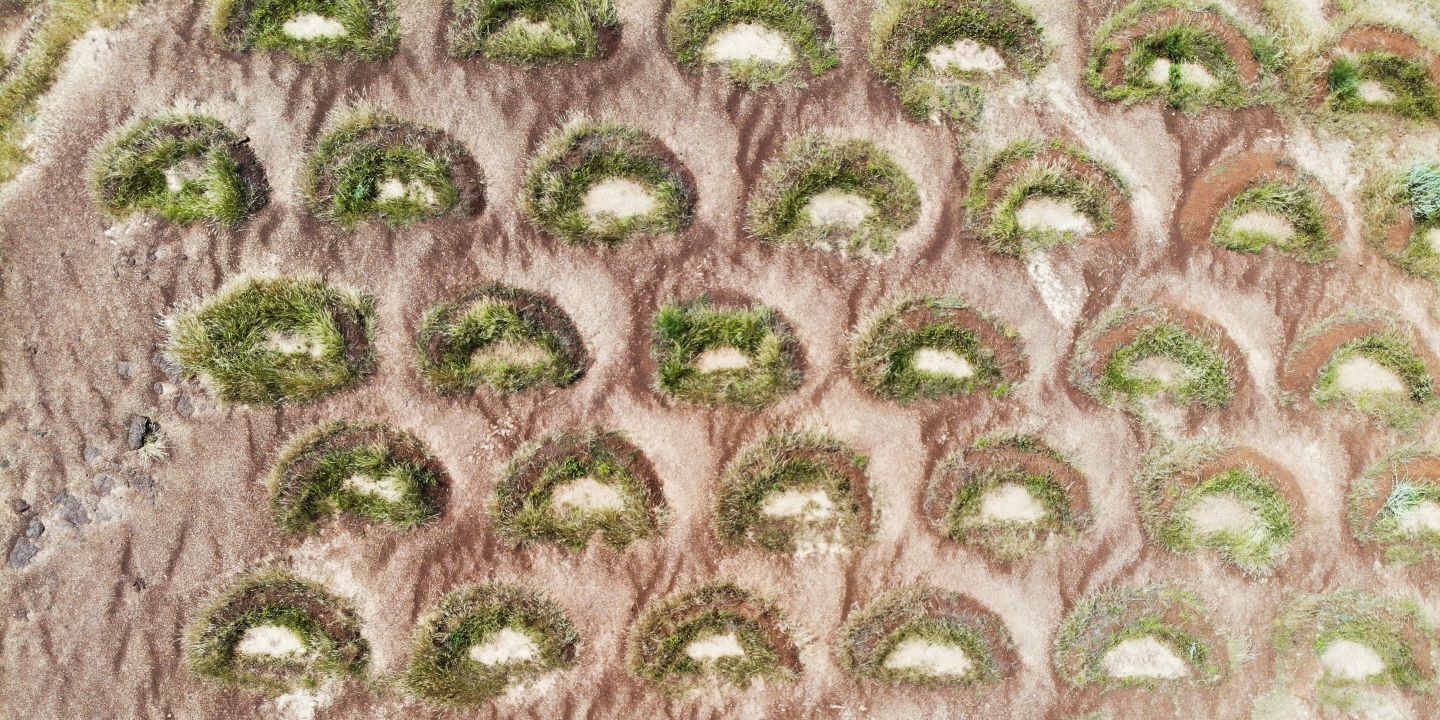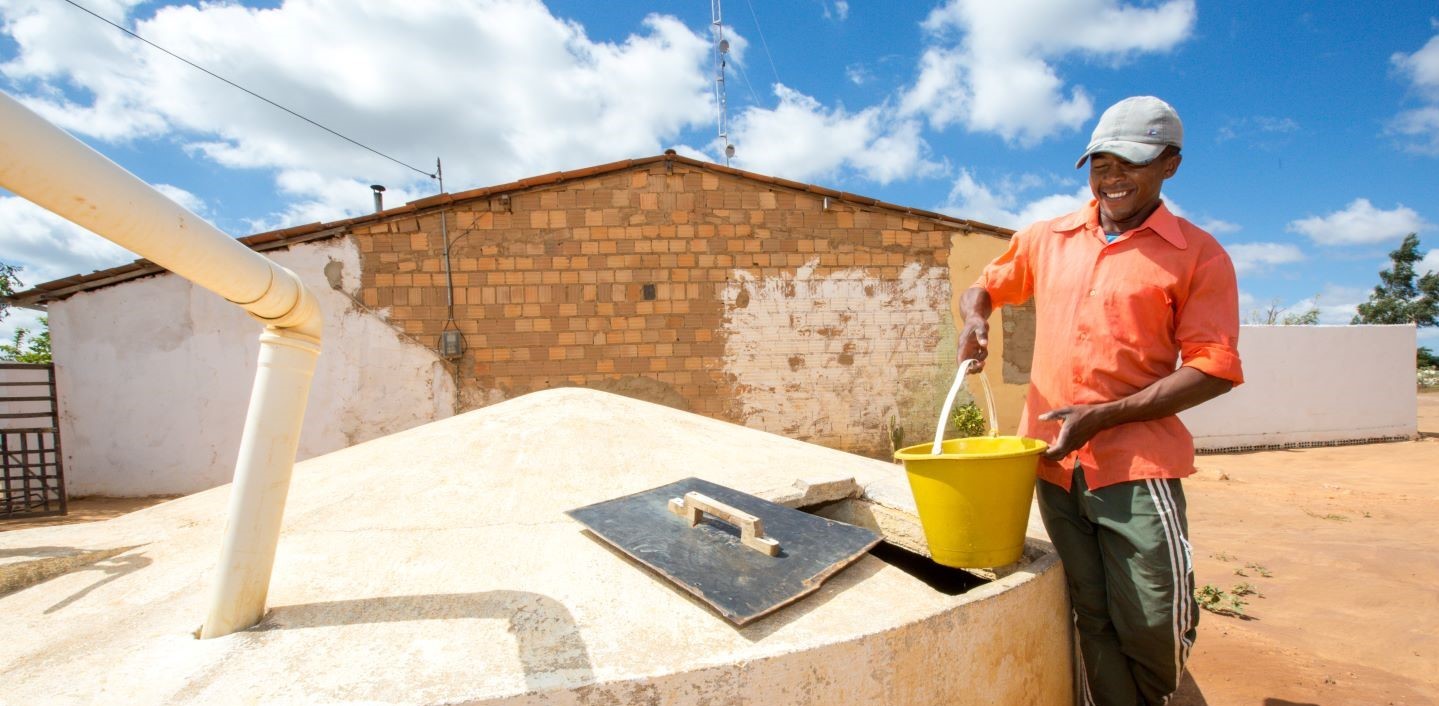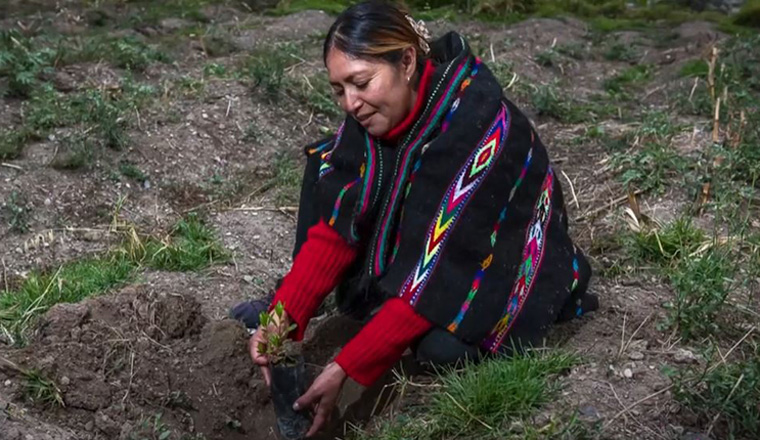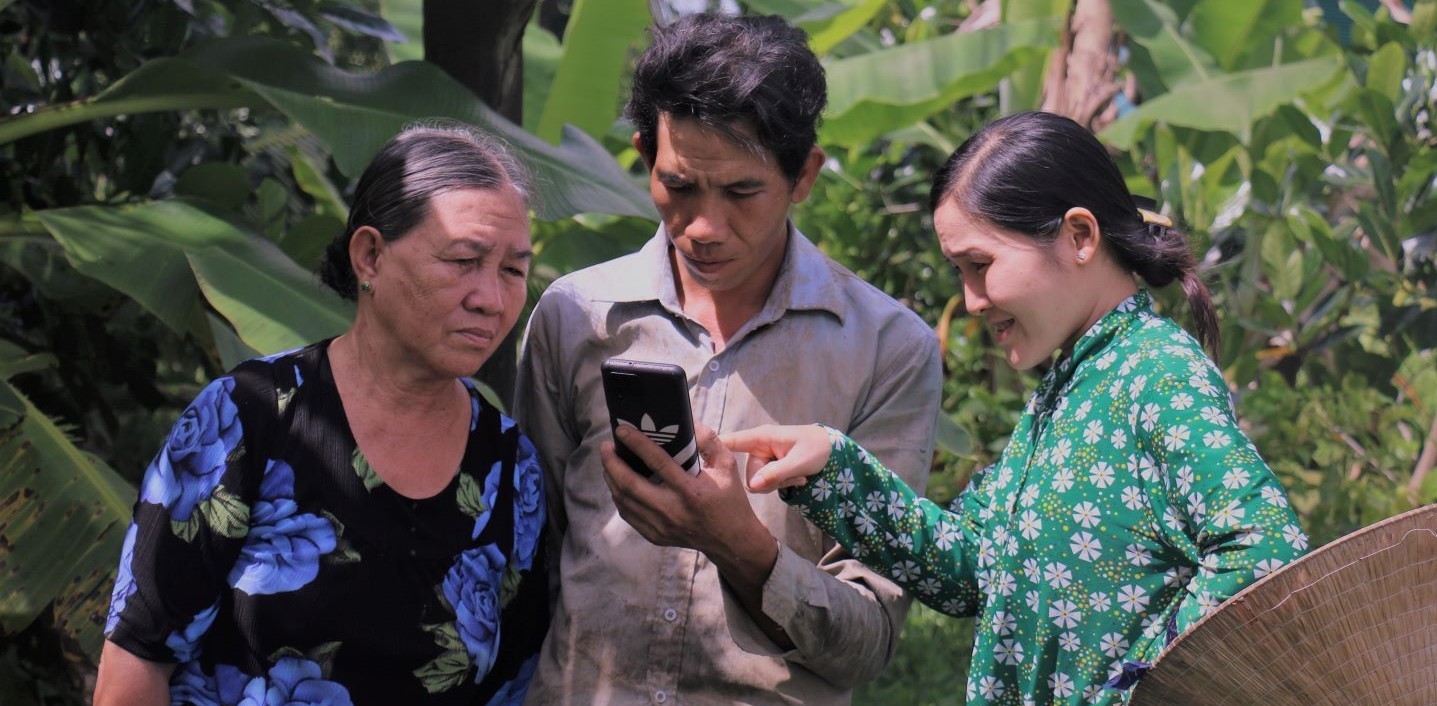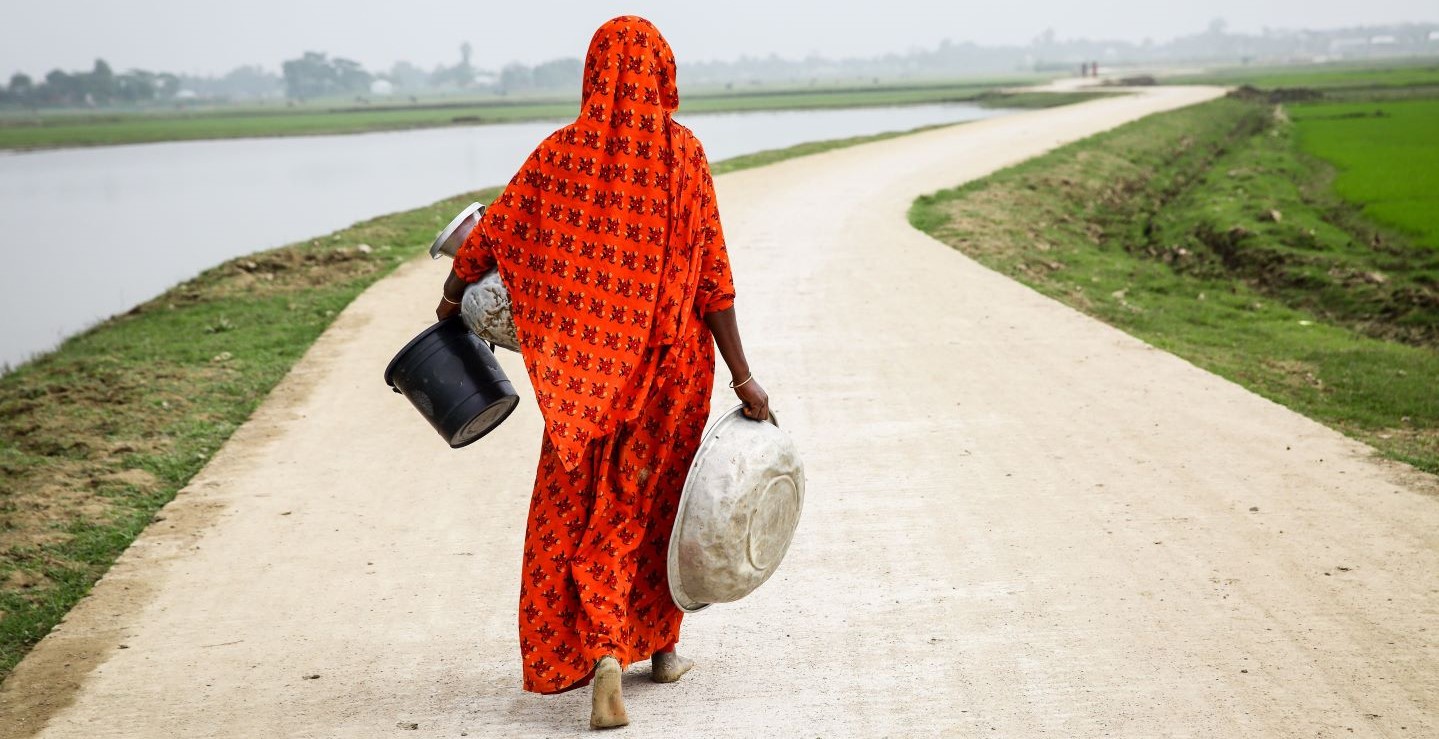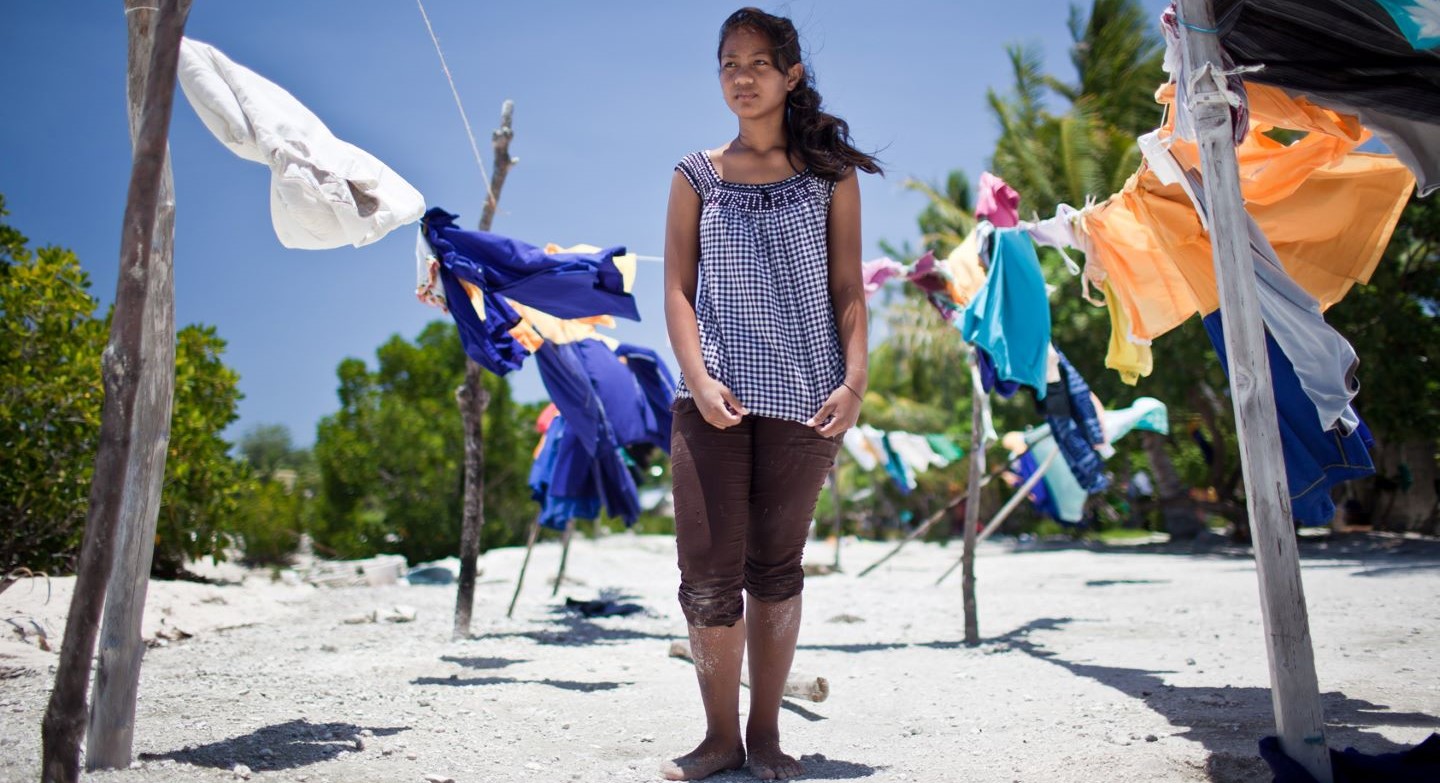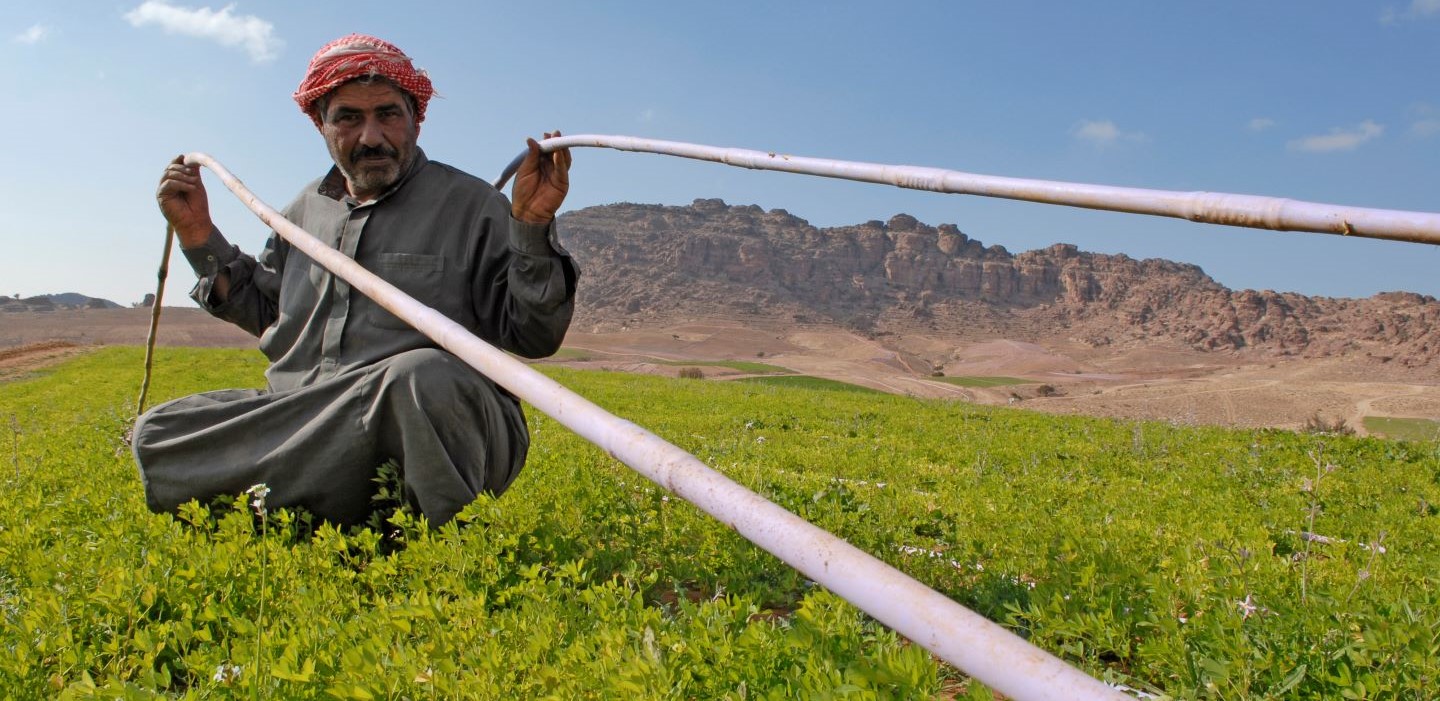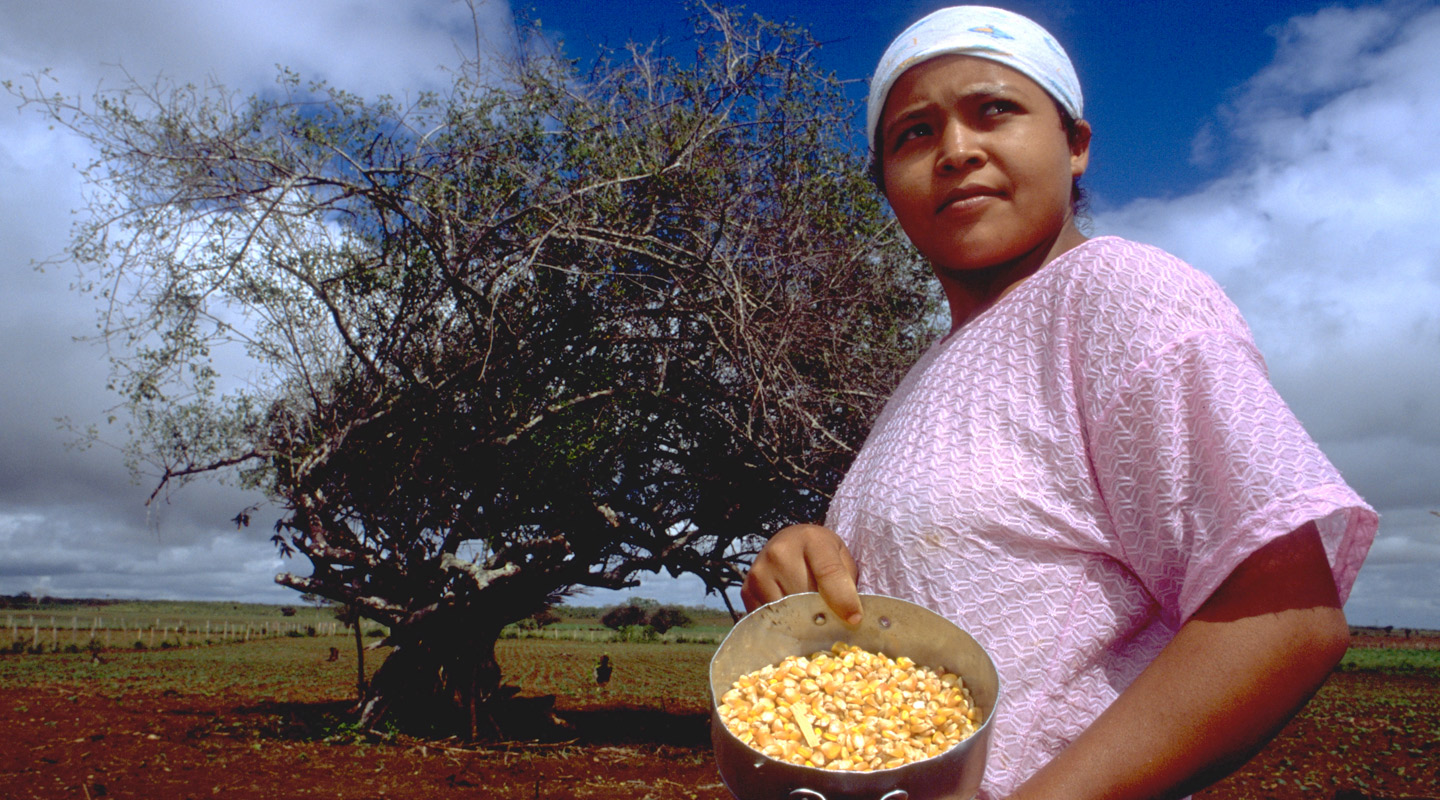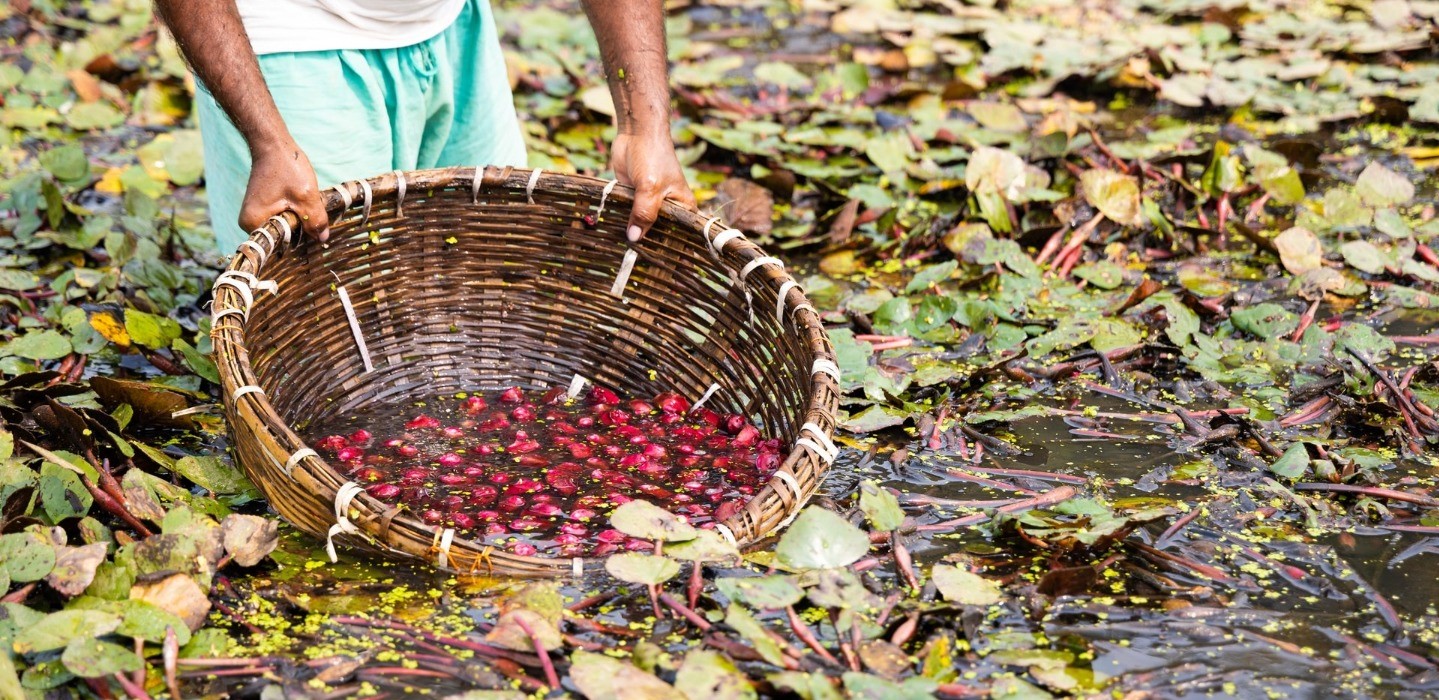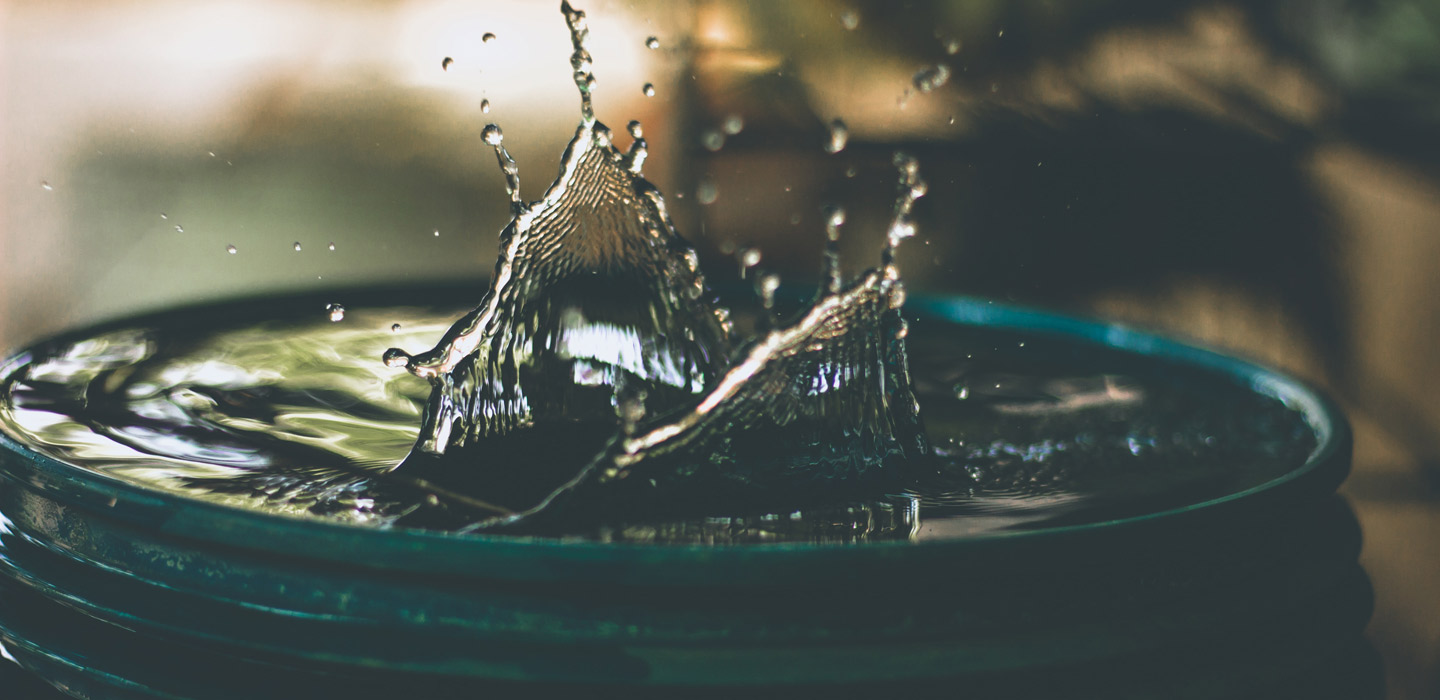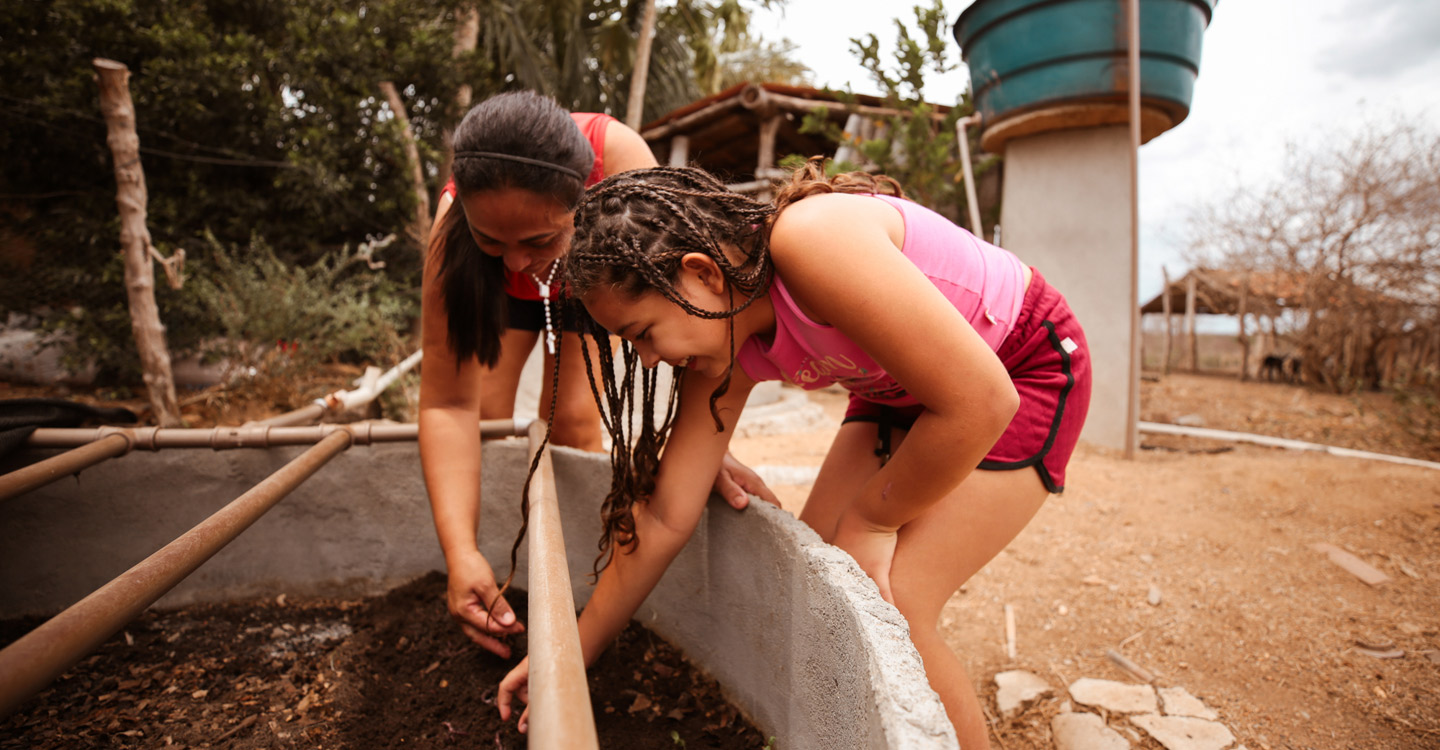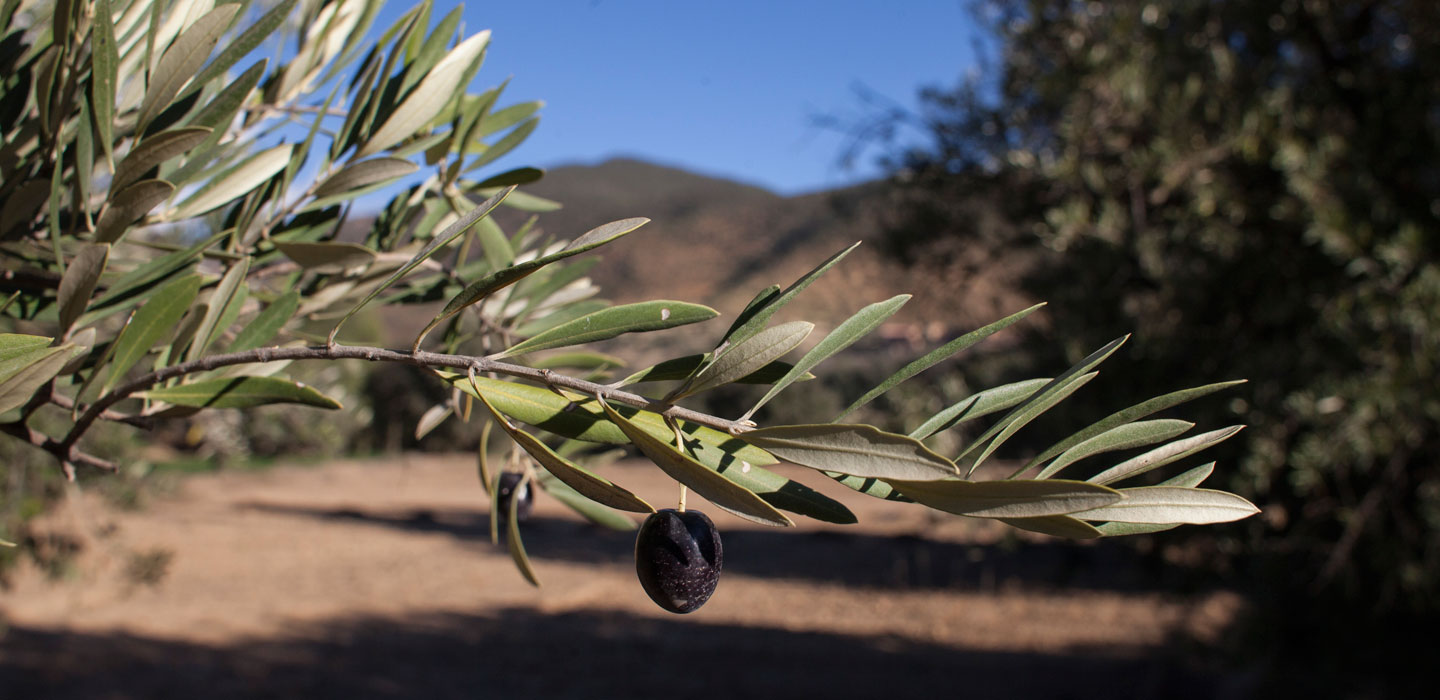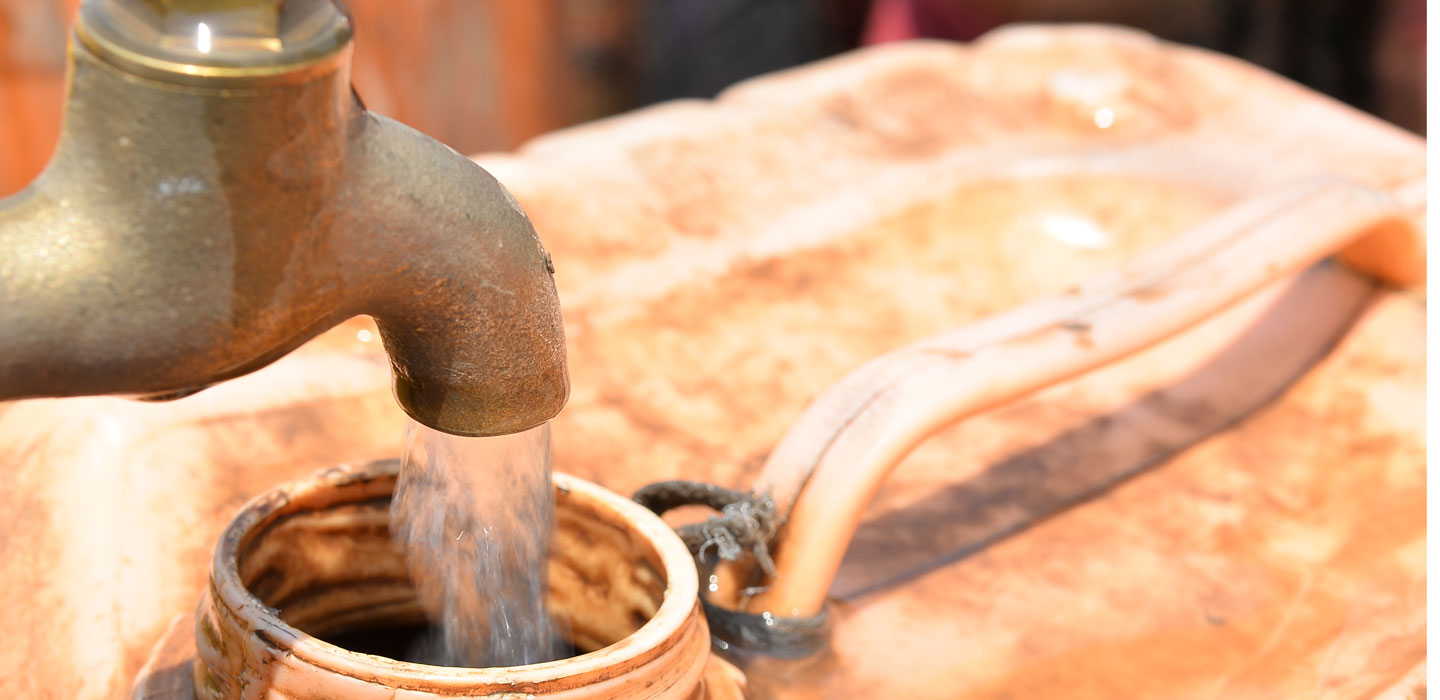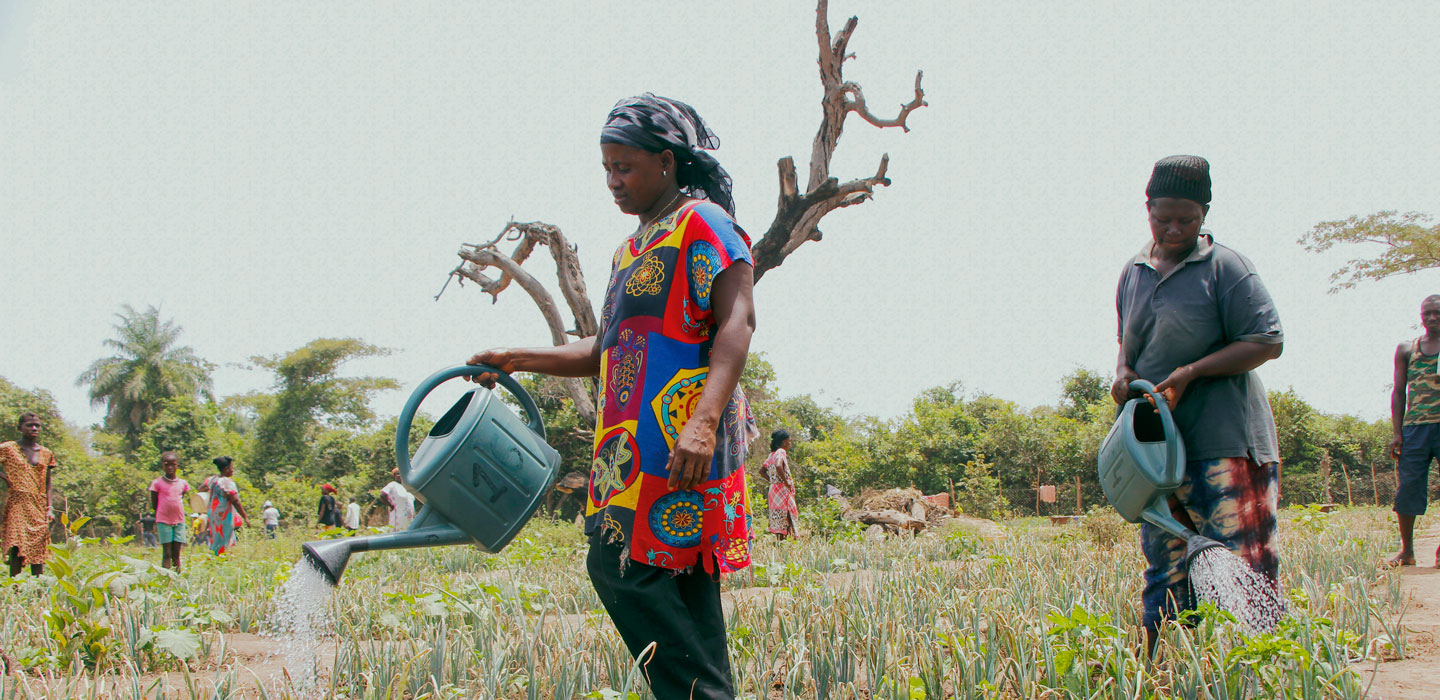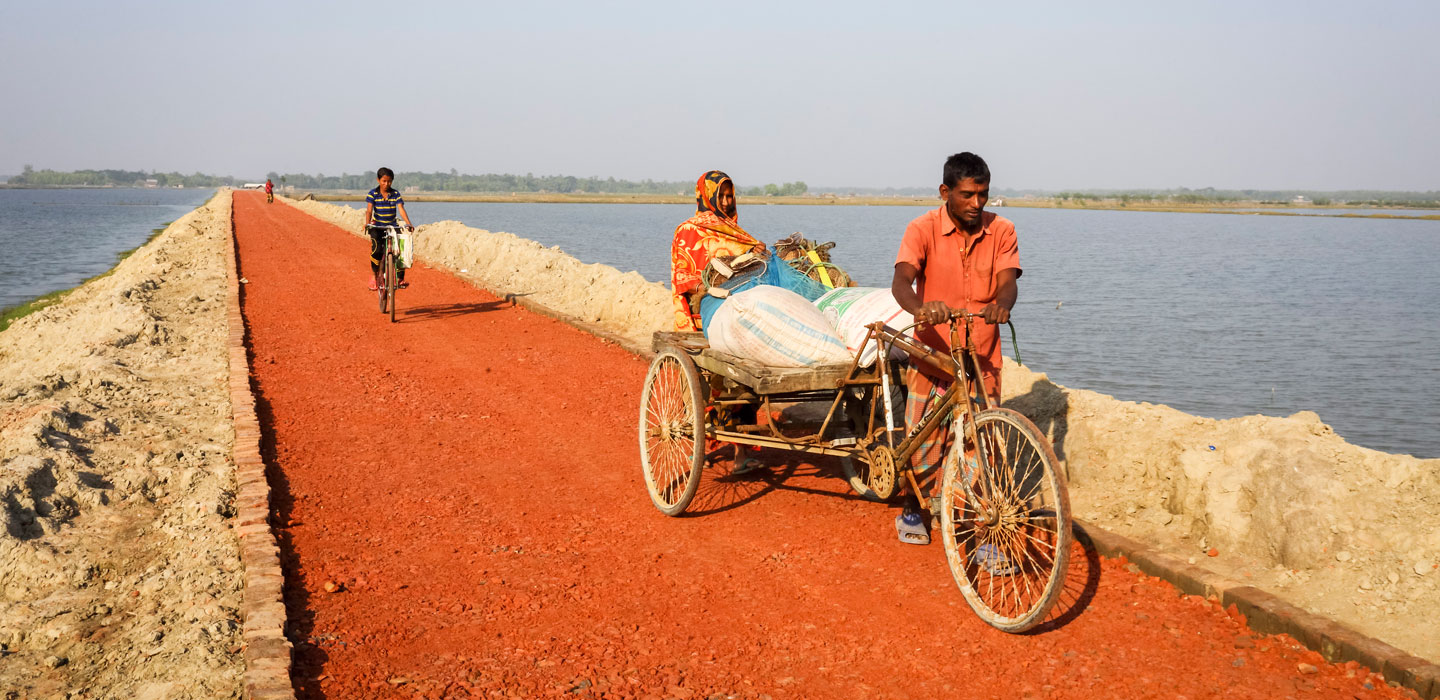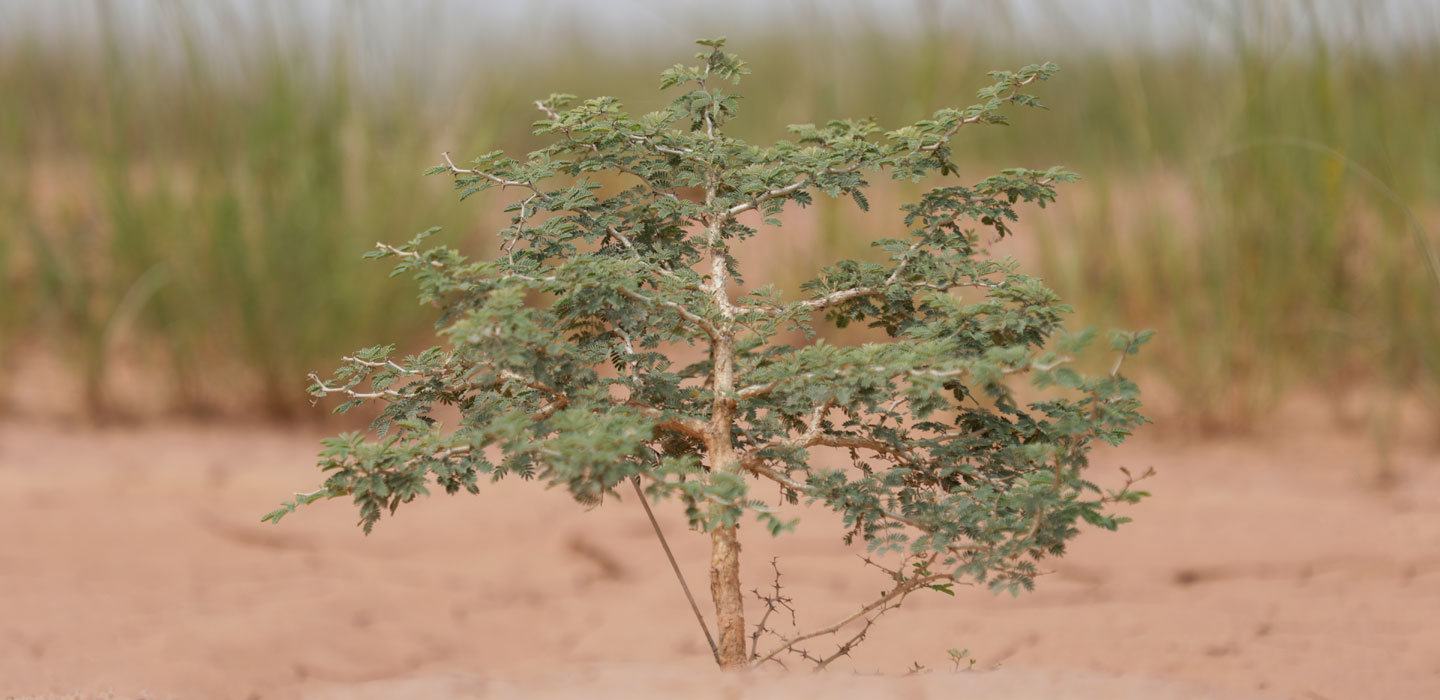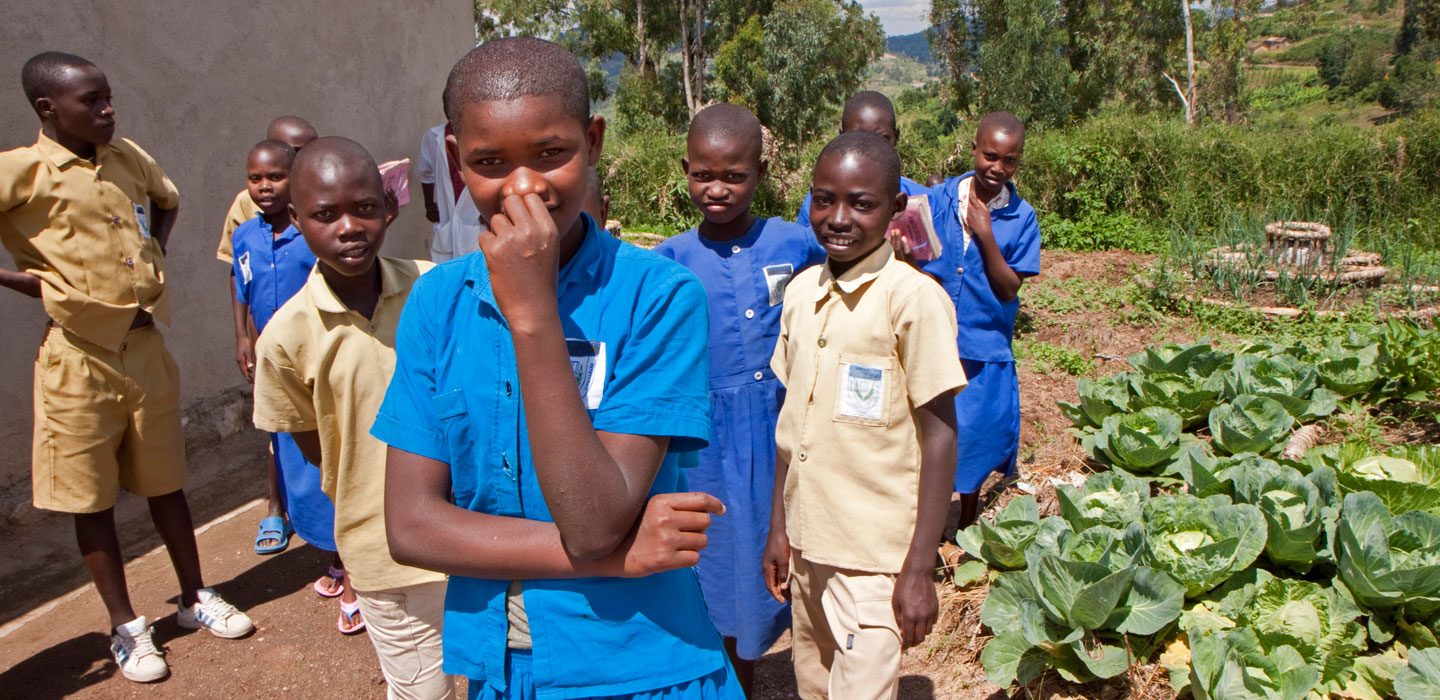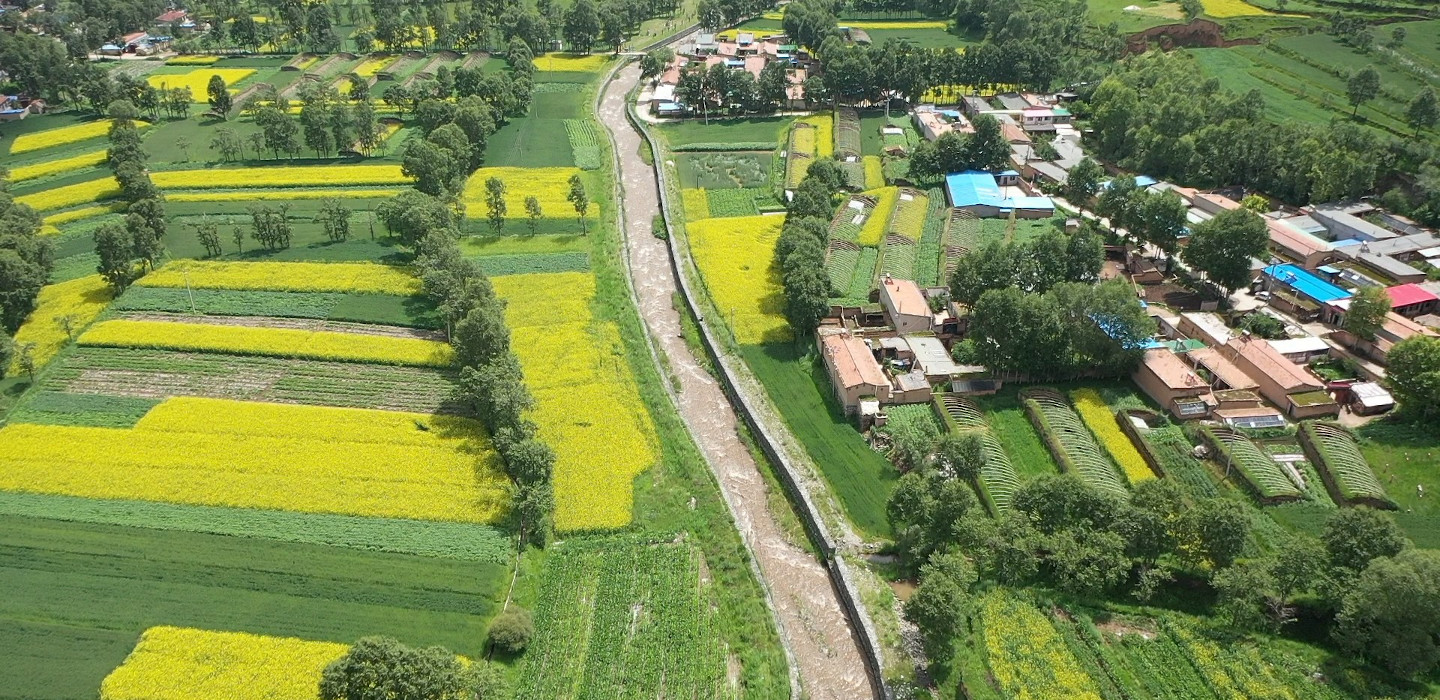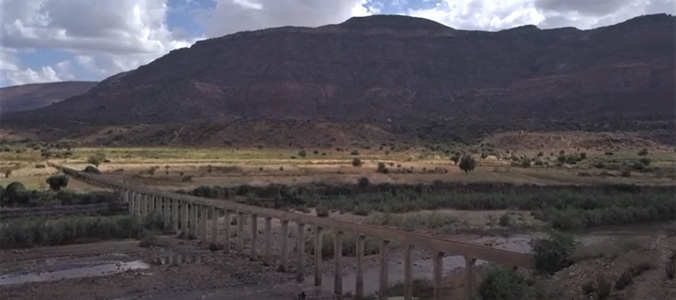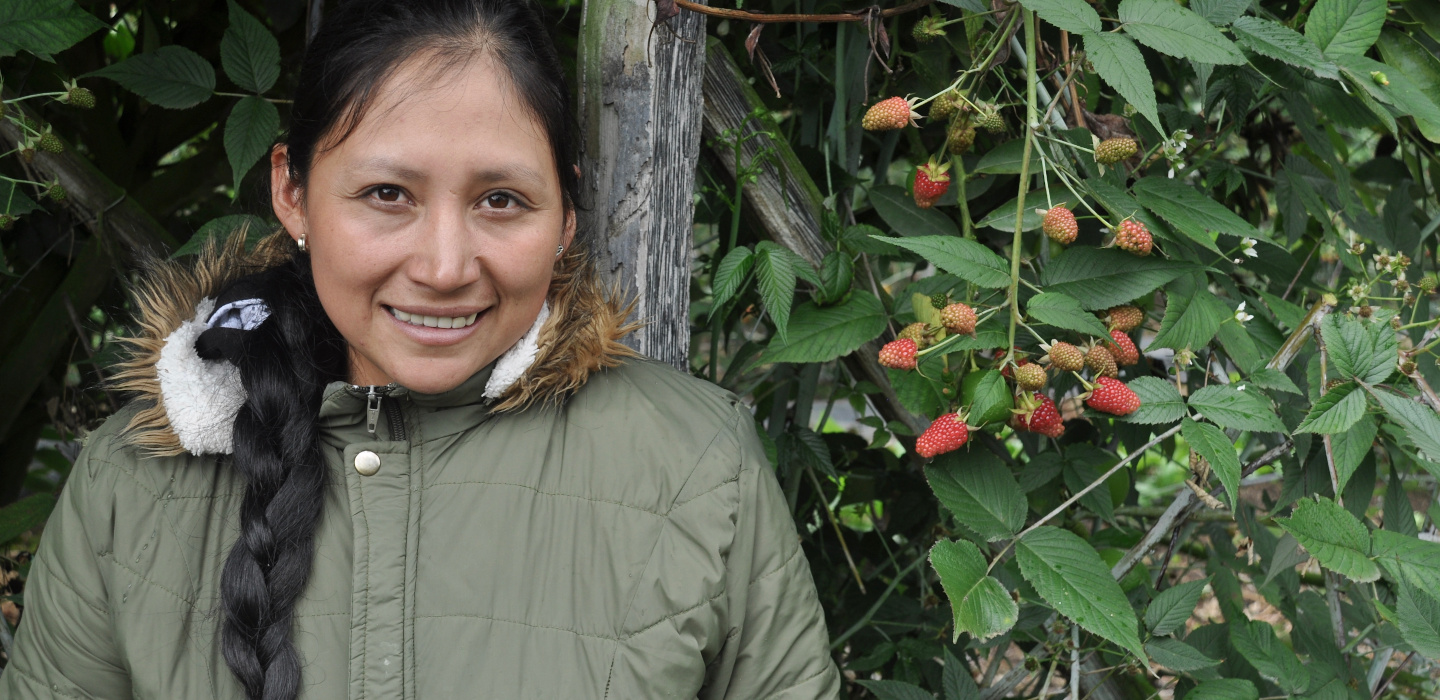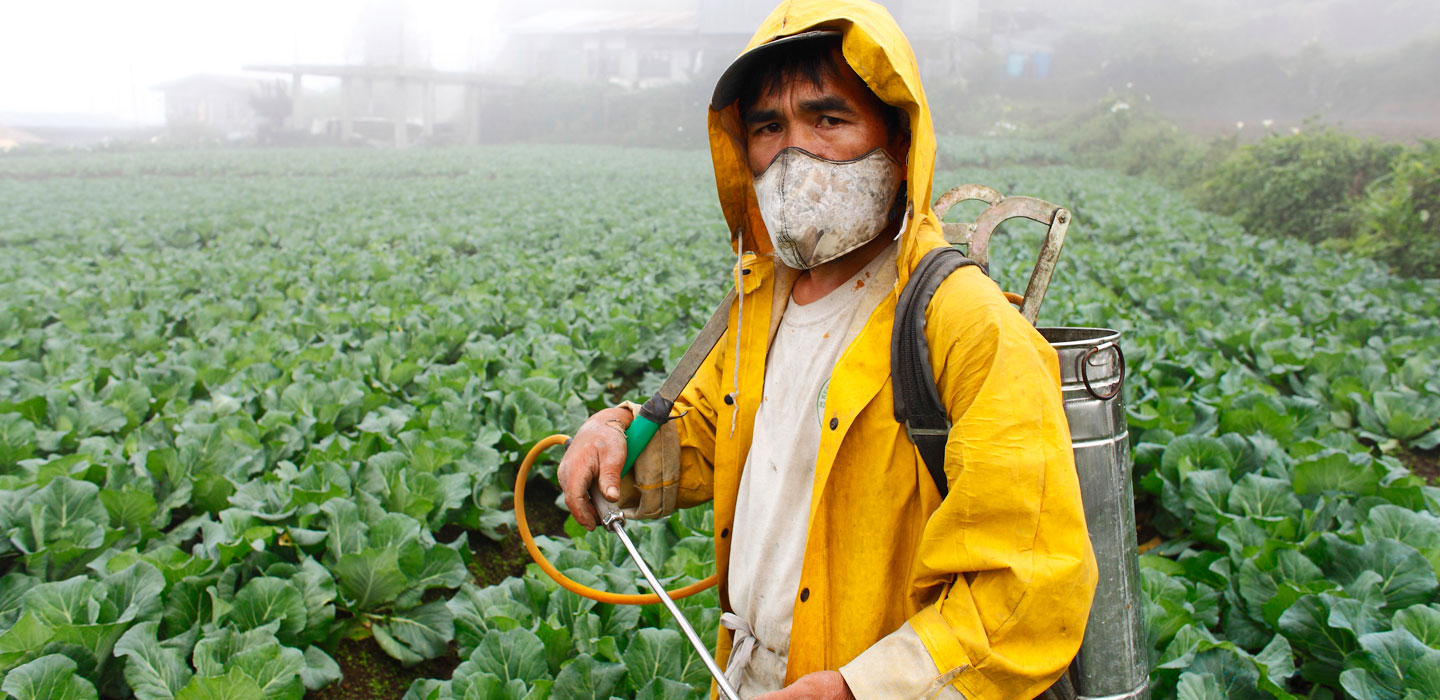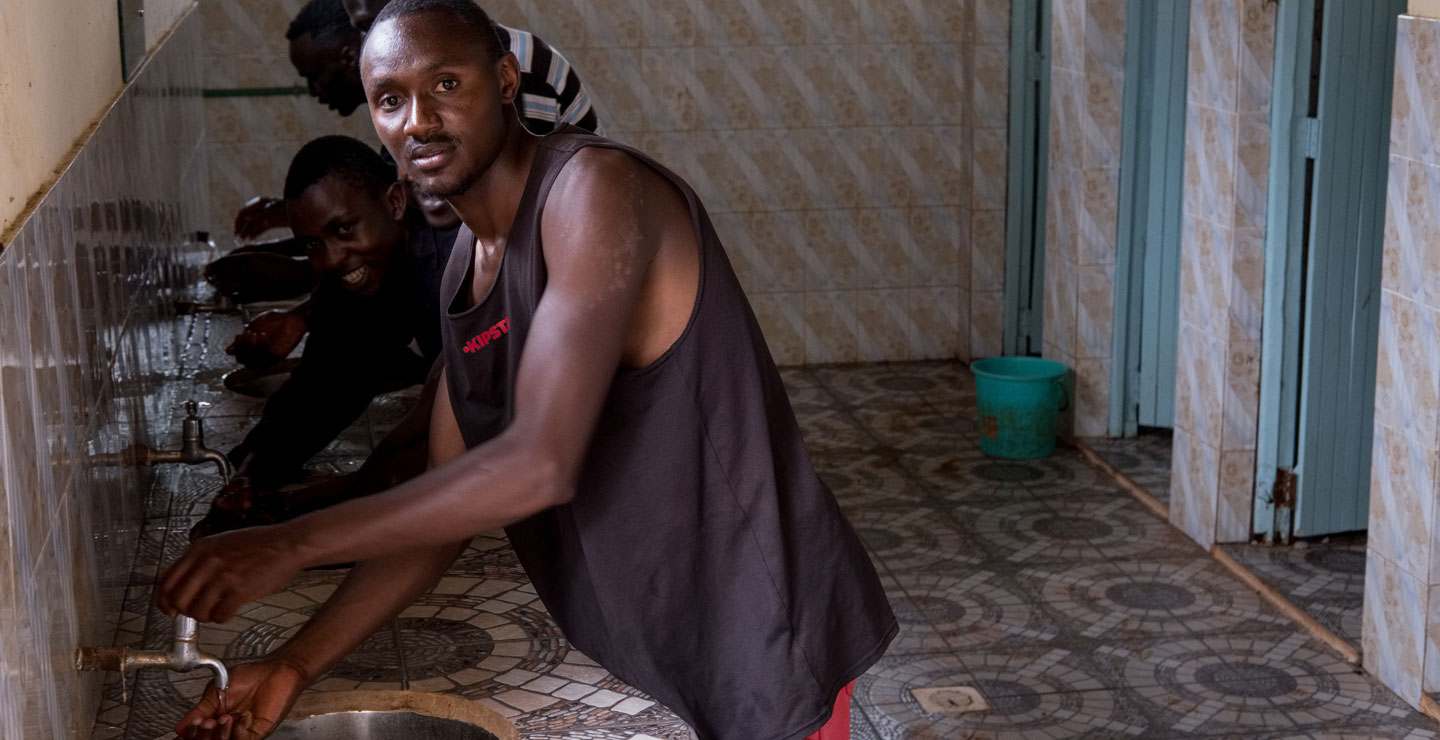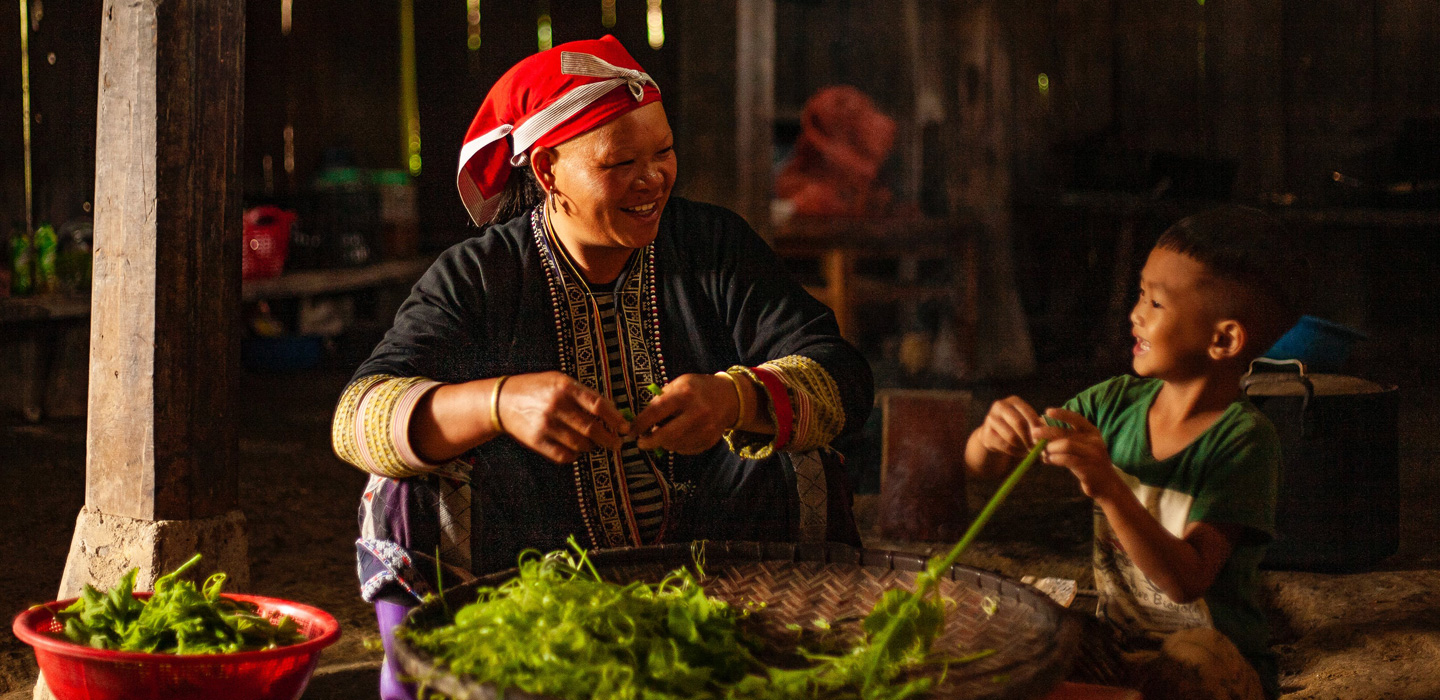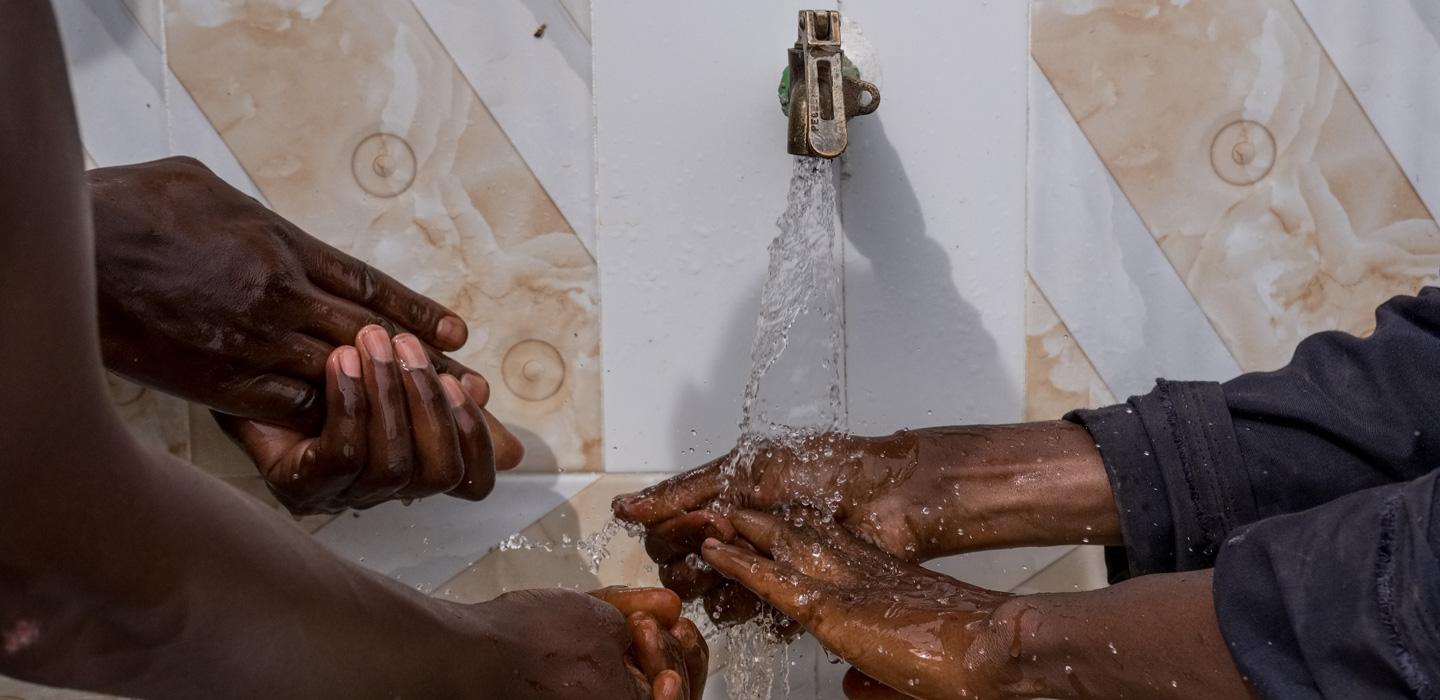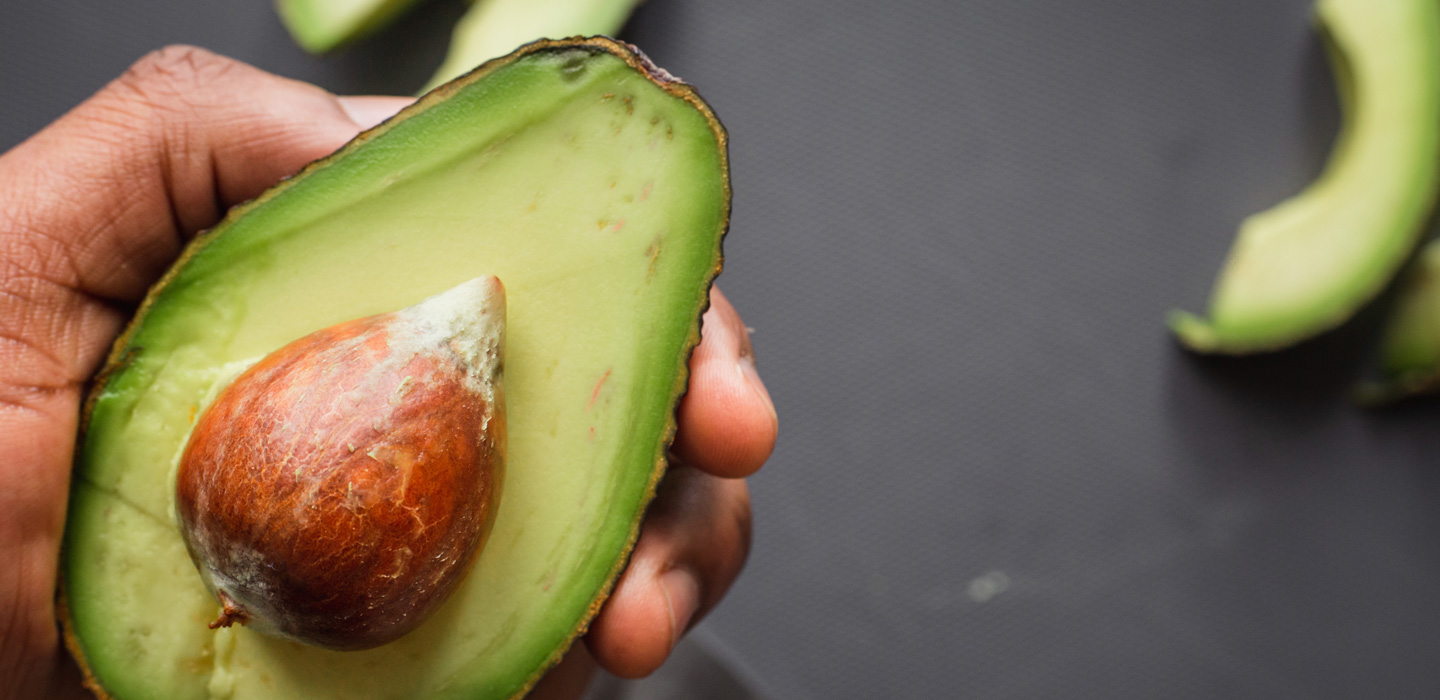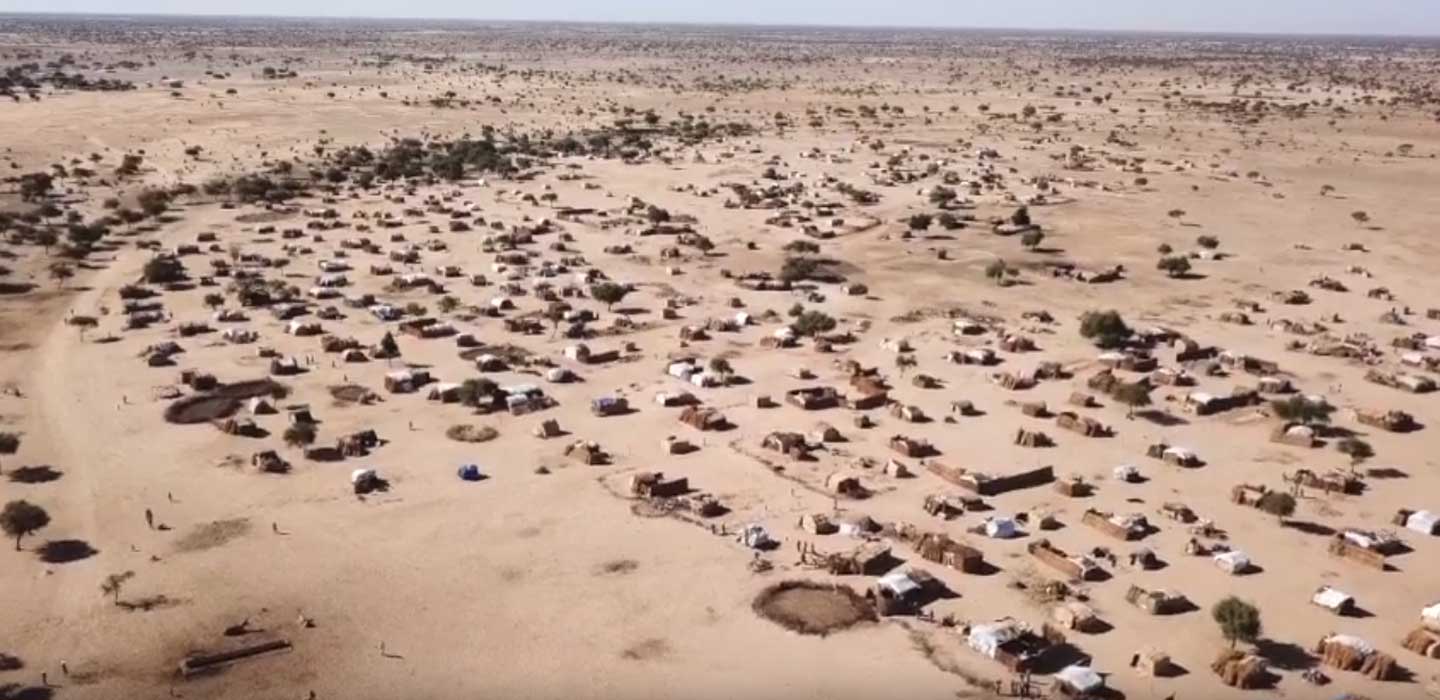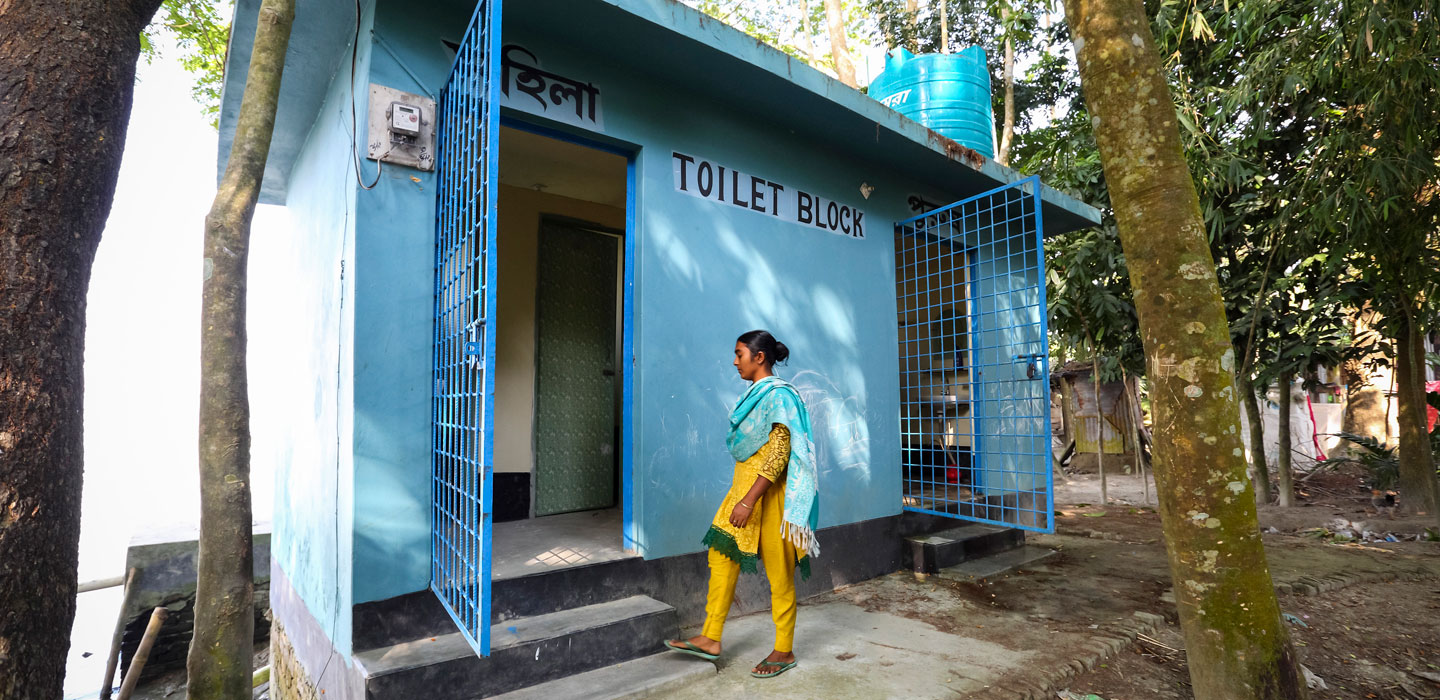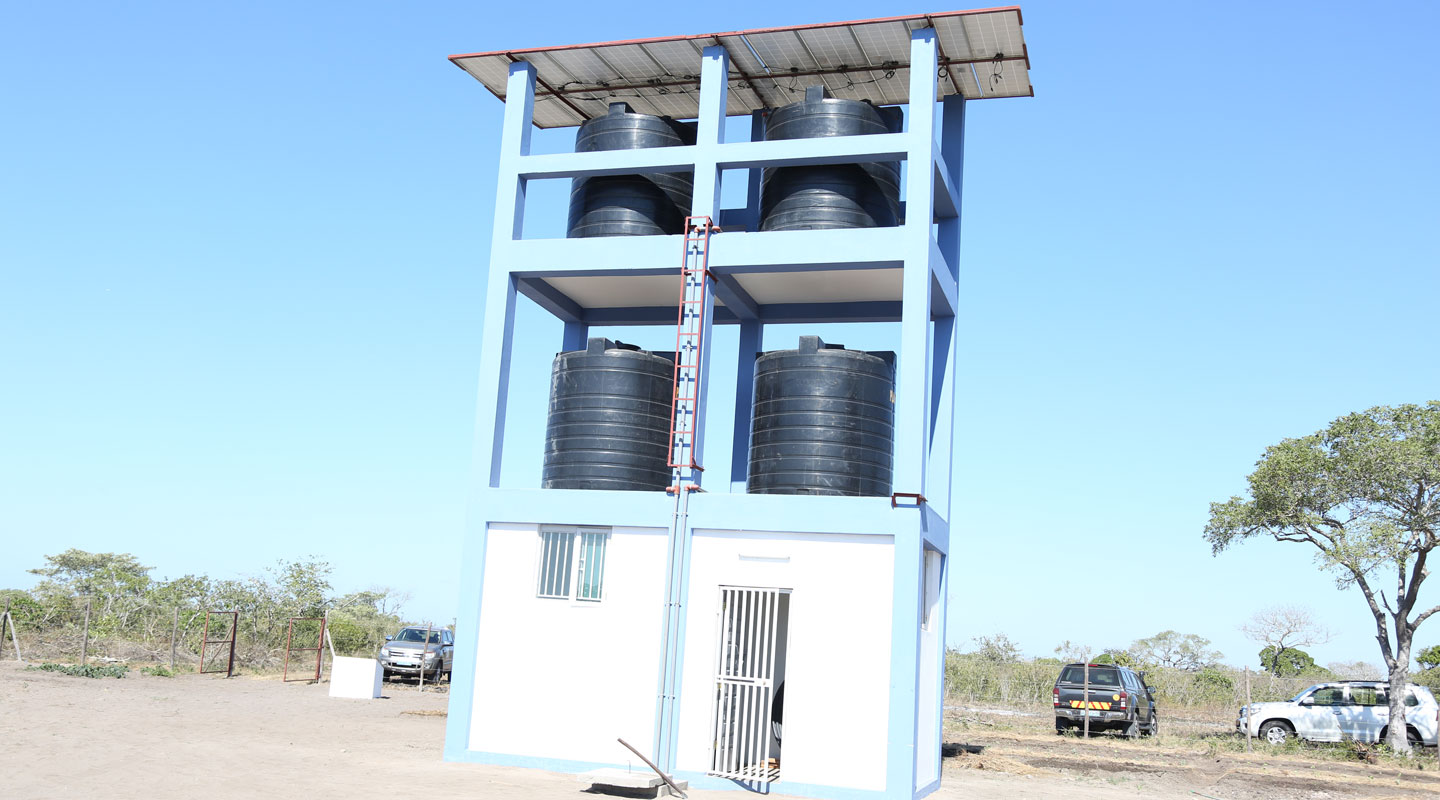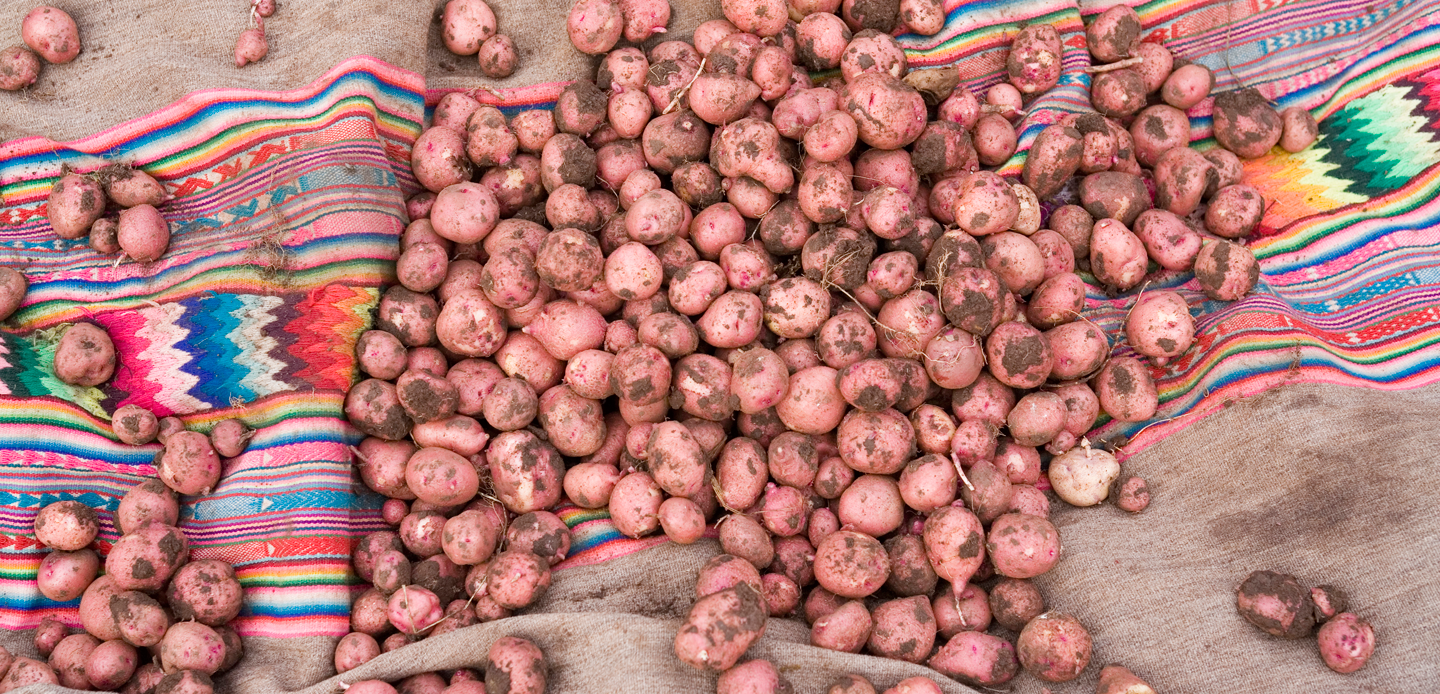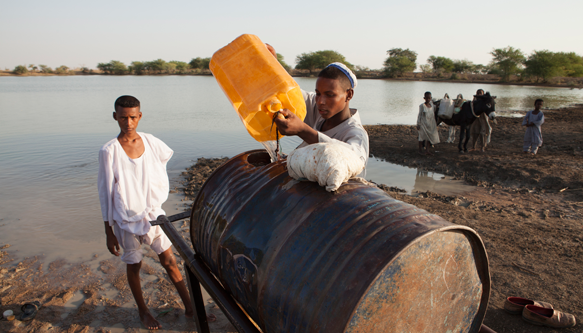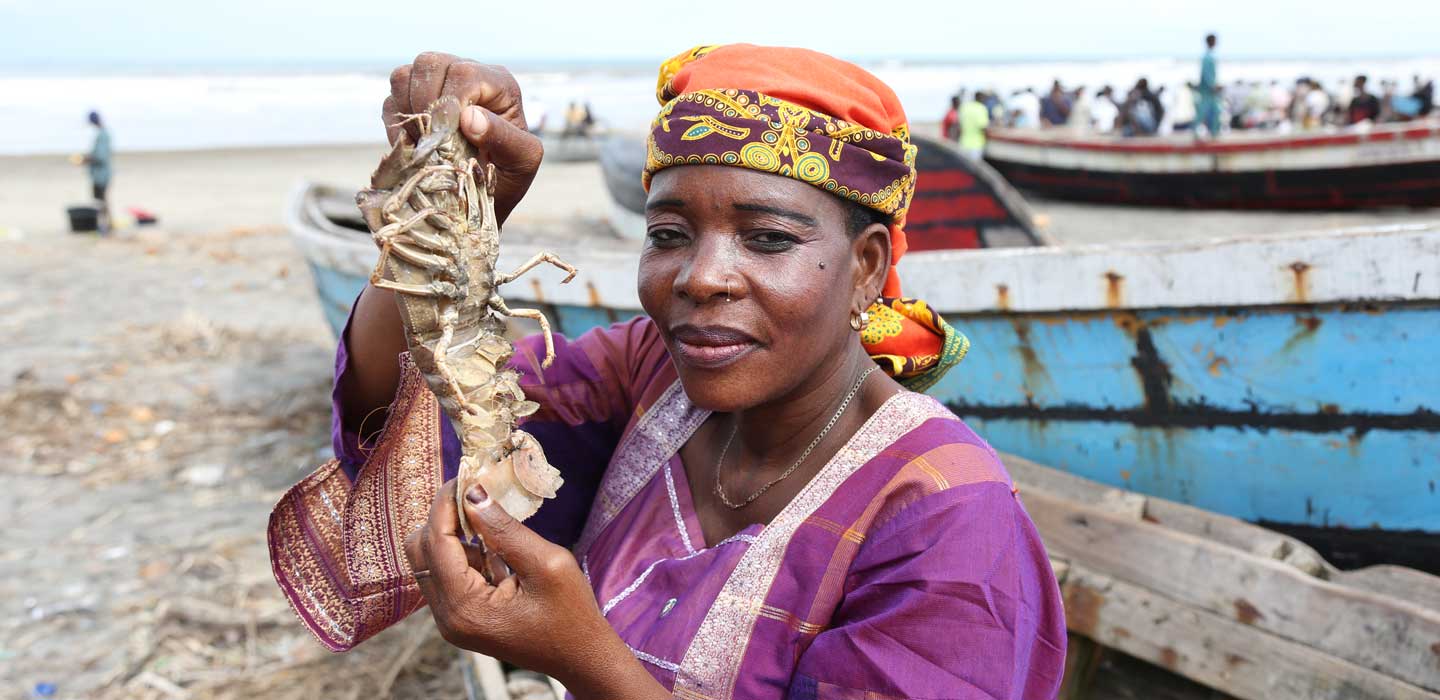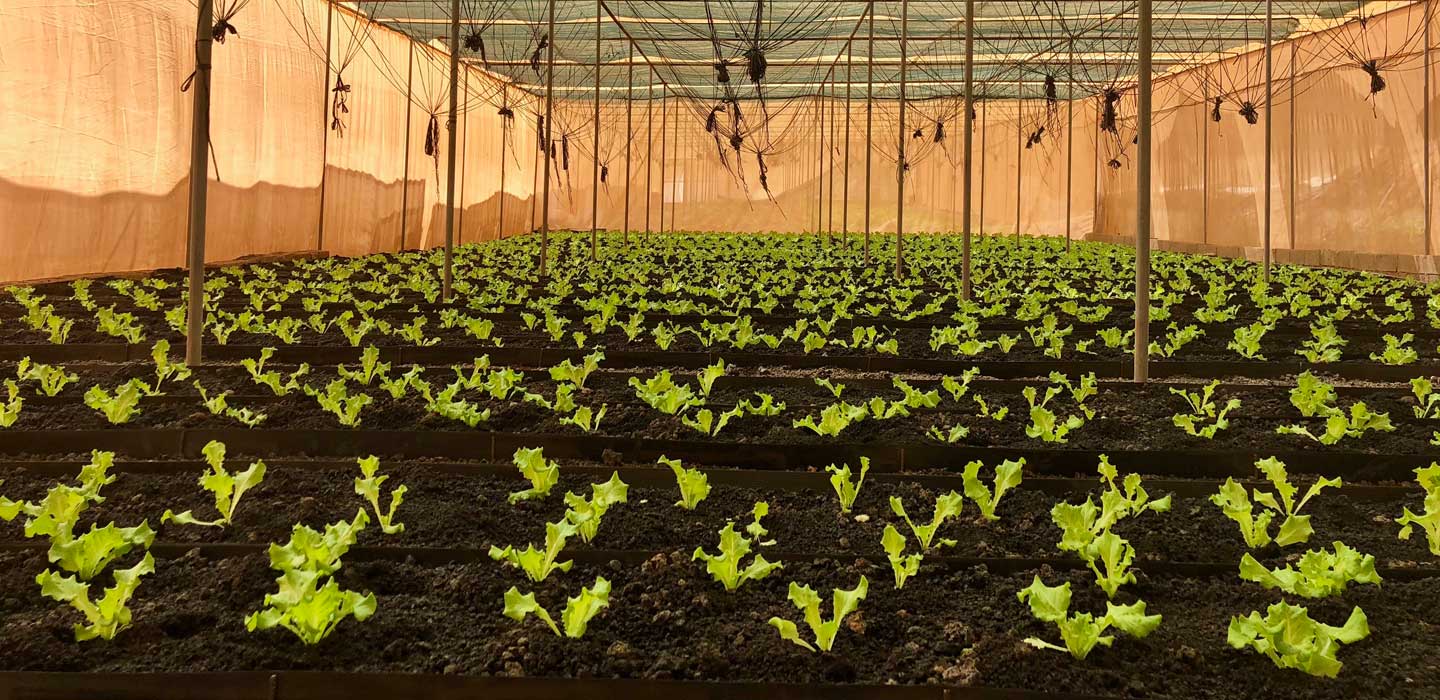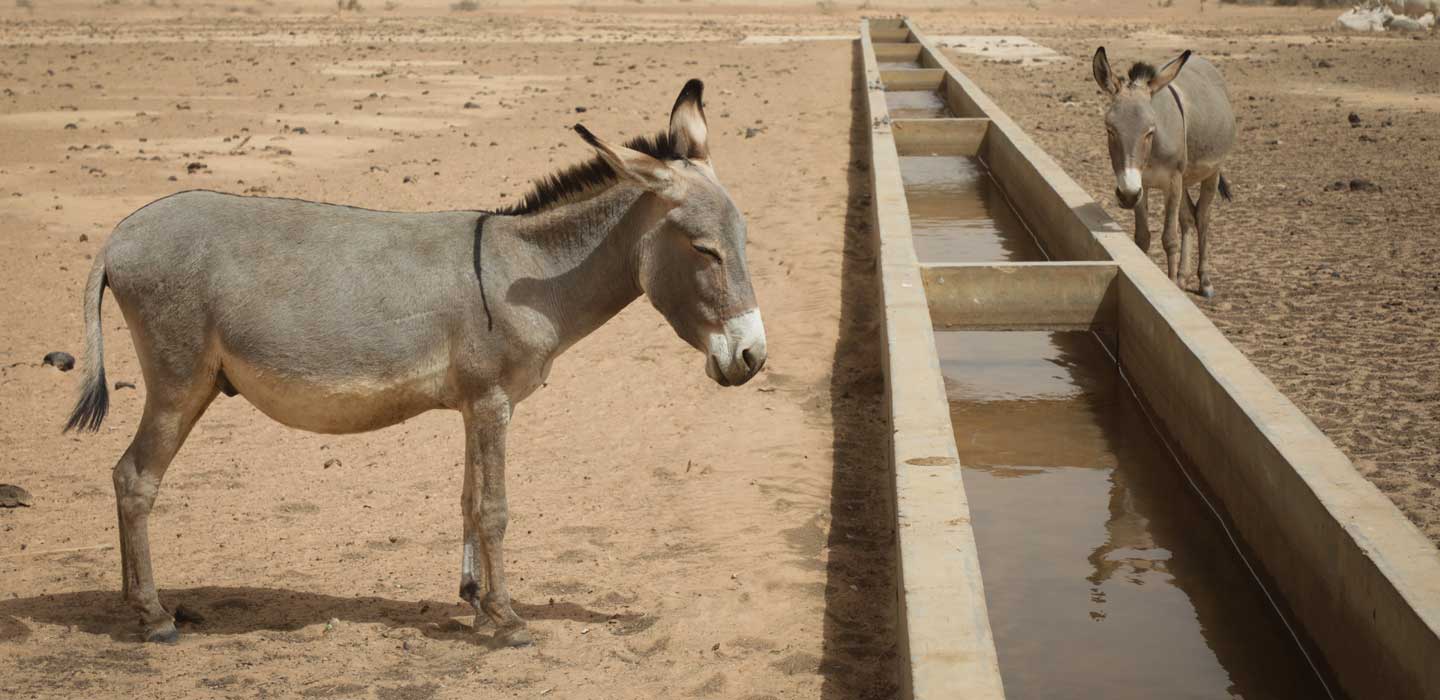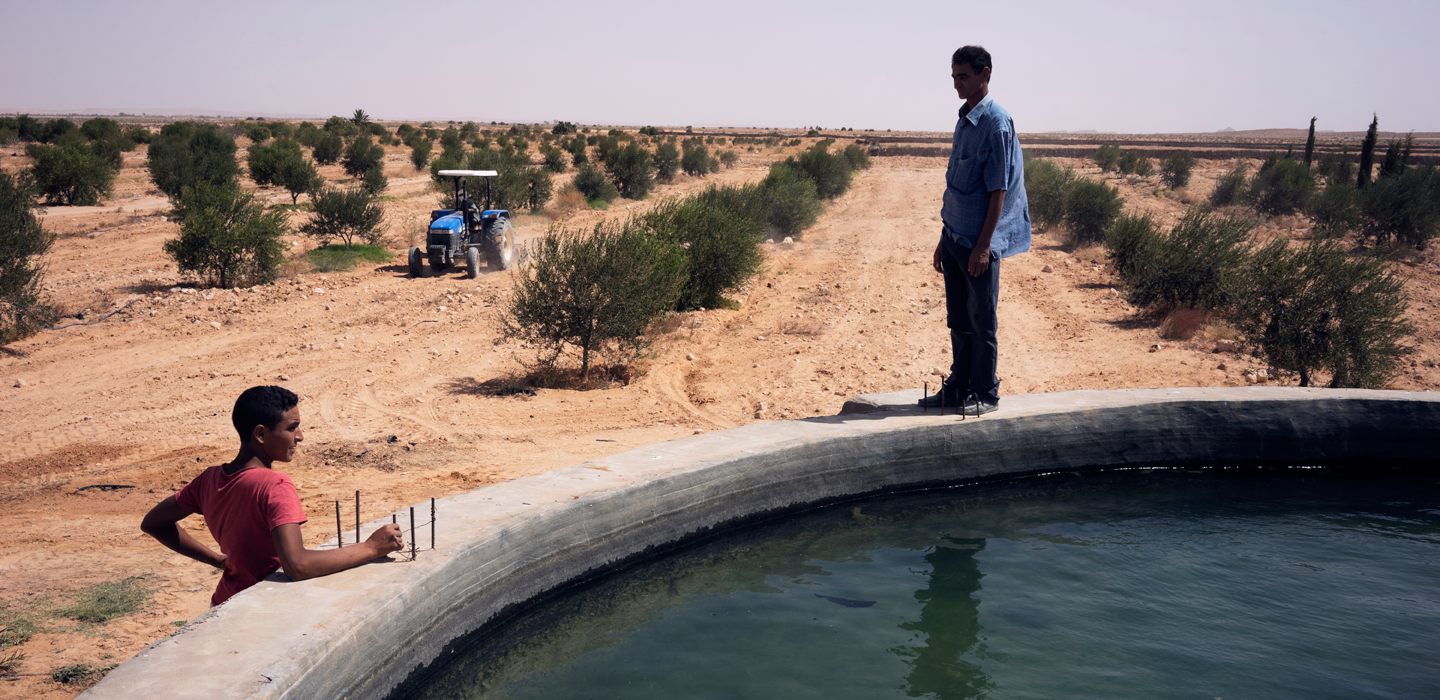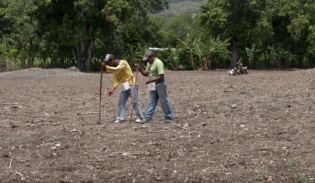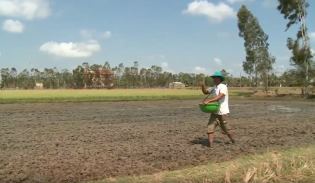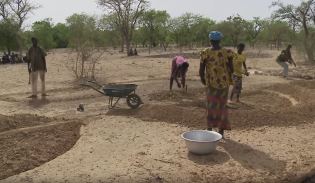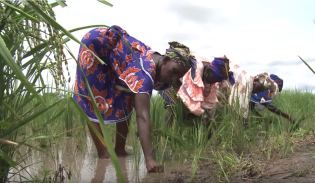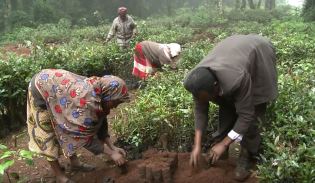Latest
Latest

Latest
Manual Submenu Topics
Search Results Filters
Search Results
See how water and peace go hand in hand
Peace and water are inextricably intertwined. That’s why sustainable rural development can help reduce conflict in communities – and why water is often the crucial element that can make the difference.
Prosperity or the planet? Luckily, they're not mutually exclusive
All too often, value chain development harms the planet by emitting carbon and degrading environments. That’s why to build truly prosperous rural areas, we must make value chains not just strong, but sustainable.
Sophie Grigson on how diversifying crops in Malawi cultivates sustainability and resilience
IFAD Recipes for Change chef Sophie Grigson travelled to Malawi to meet local small-scale farmers who are fighting back against climate change by diversifying their crops.
Recipes for Change: Nsima with chicken casserole and khobwe balls
Learn how to make a delicious and sustainable Malawian meal with these recipes collected from rural communities by Chef Sophie Grigson.
A guide to the pulses that power our planet
Pulses are at the heart of thriving rural communities, and an essential ingredient for a sustainable future. Learn about some of these superfoods – and how to cook them with our Recipes for Change!
The wonderful power of wetlands
Wetlands are closely linked with our wellbeing – they protect against erosion, improve water quality, and host a vast range of species. Let’s visit some of these precious ecosystems and meet the rural people protecting them.
When it comes to measuring water security, lived experiences matter
Water stress is growing around the world. To effectively tackle it, a new approach assesses not only whether water infrastructure is available and working, but also whether it is meeting the needs of the people who rely on it.
Investing in a better future: Near East, North Africa, Europe and Central Asia
The Near East, North Africa, Europe and Central Asia is a dynamic region faced with many challenges. We caught up with Regional Director Dina Saleh to find out how rural people are coping with the realities of conflict and climate change and to understand why the right investments now can make all the difference later.
In Egypt, PRIDE brings water to the wadi
Generations of farmers in Egypt have used valley beds to grow figs and olives, but today’s erratic weather patterns have caused land degradation, soil erosion and a drop in yields. Find out how water management technology is bringing these flavoursome fruits back to life.
More food with every drop
Water is key to food and agriculture, but with many parts of the world increasingly affected by water scarcity, it’s critical that we use it wisely. Luckily, small-scale farmers are up to the challenge.
The road to a greener future
Roads may sometimes be taken for granted. But for remote rural communities, they can be life changing. Find out how integrating roads and water management can lead to sustainable economic growth.
Africa is in the eye of the climate change storm. Here is what its people are calling for
It’s time countries step up their investments and secure a climate-resilient future for small-scale farmers in Africa. Here’s how.
As temperatures rise, so too does our need for diverse crops
Drought is the number one cause of agricultural production loss. This is why IFAD supports small-scale farmers as they grow crops that are resilient, but often neglected.
New Zealand contributes US$3.57 million to IFAD to enhance resilience of Pacific island communities through climate smart agriculture
IFAD and the Government of New Zealand signed a NZD 5.75 million (USD 3.57 million) agreement to support Pacific communities to ensure sustainable access to water and healthy diets.
Five decades of rural transformation: IFAD's greatest successes
Since its founding in 1977, IFAD has worked to enable rural people all over the world to overcome immense challenges and thrive. We take a look at some of our biggest successes over the years.
Cabo Verde is small in size but not in ambition
Despite its name, Cabo Verde is arid and water starved. IFAD AVP, Jo Puri, visited the archipelago to discuss its future with the country’s leadership and hear from the rural people IFAD supports about how we can improve their lives.
Fighting water scarcity with innovation – Episode 44
This month we are focusing on water scarcity.
The sun is the unlikely solution to rural India's water problem
In India, two rural villages find comfort in solar-powered water systems.
When the world is drying up, every drop of water counts
Climate change and a growing population are exacerbating water scarcity. As the water cycle is disrupted, farmers are coming up with inventive ways to harvest, store and use water. IFAD is helping them with simple but effective and climate-smart water infrastructure.
Rural people in Sudan call time on water wars
As the climate crisis takes hold and water scarcity sparks conflict, rural people in Sudan are finding ways toward peace and equitable resource management.
2022: Resilience in the face of adversity
As we near the end of 2022, IFAD looks back on some of the themes that defined a year of dramatic change.
Rural people in crisis: The latest news from IFAD
Rural people are still paying the highest price for the rise in food, fertilizer and fuel costs. The Crisis Response Initiative was set up as part of IFAD's ongoing efforts to build rural people's resilience to these shocks. Here are selected highlights on the crisis from our teams in the field.
Rising sea levels threaten Egypt's fertile plains in the Nile Delta
The Nile Delta is the breadbasket of Egypt, but climate change threatens agriculture here. IFAD is working to protect the land and improve the quality of previously infertile land. Sabrina Dhowre Elba, IFAD colleagues, and project coordinators and participants describe how this is changing people’s lives.
Small-scale farmers could help fill the global food gap if they irrigate properly – even with growing climate challenges
Small-scale farmers hold the key to feeding the world, its important for them to trust and invest in different types of irrigation systems.
A tale of two towns in Tajikistan
In Tajikistan two neighbouring towns face different fates as one suffers the aftermath of drought and displacement and the other is saved by irrigation.
Water brings life to rural people
Irrigation brings water to the world's poorest rural people in the right quantities and when they need it, helping farmers adapt to climate pattern shifts.
As COP15 tackles desertification, here are three ways IFAD is helping farmers in sub-Saharan Africa build their resilience to climate change
Sub-Saharan Africa’s drylands – that is, the areas where more water is lost through evaporation than gained through rainfall – are facing widespread degradation. There are many factors causing this, but one of the most prominent is the use of agricultural practices that aren’t adapted to the land, such as overgrazing and intensive agriculture.
These numbers show that restoring drylands and preventing desertification is good for the planet – and good for us
From California to the Sahel, from the steppes of Central Asia to the Andes, drylands are some of the most productive ecosystems in the world. But they’re also some of the most fragile.
Building a bay, one oyster at a time: A conversation with Chef Rob Rubba
“At the end of the day, restaurants are a luxury, but having food is a right. Everyone should have access to food.”
Is the grass always greener where it rains?
Groundwater depletion continues to be a challenge for small-scale farmers in the NENA region, despite the existence of water-saving technologies. Now, a new study is shedding light on ways farmers can improve their water efficiency – and where they can turn for help.
Groundwater can help small-scale farmers adapt to climate change, if it’s used sustainably
If groundwater is used carefully, it can be used by small-scale farmers to grow the crops they need to feed their families and build livelihoods in areas that are strongly affected by climate change.
Uncovering the truths about groundwater
Below our feet lies a hidden treasure: groundwater. It sustains ecosystems and provides food, drink and livelihoods for billions. And as climate patterns change with global heating, this reliable water source is becoming ever more important for food security and livelihoods.
Fostering ecosystem services in the Peruvian Andes
The FIDA-MERESE project has helped farmers in the Jequetepeque and Cañete river basins become stewards of the ecosystems on which they depend.
Public-private partnerships accelerate climate change adaptation in Viet Nam
In recent years, saline intrusion – the encroachment of seawater into fresh water sources – has become a serious threat to small-scale farmers in Viet Nam’s Mekong Delta. Thanks to a public-private partnership, a local technology company was able to collaborate with an IFAD-supported project to create a lasting solution.
Protecting homes and livelihoods in Bangladesh’s Haor Basin
On one terrible day four years ago, Anjuli Rani Das’s life was swept away before her eyes. A flash flood engulfed her small duck farm, washing away everything she had worked for in the past years.
What do the IPCC report’s findings mean for rural dwellers? Your questions answered
The IPCC report released in summer 2021 leaves no more room for ambiguity: the climate is changing, and it’s because of human activity. Here, we answer some of your questions about the report, why it’s important, and what its findings mean for some of the world’s most vulnerable populations.
The challenges and opportunities of investing in small-scale irrigation
Many countries in the Arab world rely on irrigation for their agricultural production. However, large-scale irrigation schemes have historically been difficult to manage. Small-scale schemes, when planned well from the outset, can be the solution.
Returning to Brazil’s Gente de Valor project: Lessons on sustainable impact
The Gente de Valor project was designed to assist the sertanejos (those who live in Brazil’s semi-arid region). It featured a community-driven development approach that promoted active participation and local leadership. Five years after the project ended, IFAD returned to evaluate the project’s outcomes and the effects of this approach.
What we’re reading for World Water Week
Here’s a list of our favourite books and other resources about the state of water in our world and the way it intersects with our politics, economics and societies.
Community-driven change brings water security in Tonga
Eua Island is home to many of the Kingdom of Tonga’s natural resources. Recently, climate change and natural disasters have caused significant water supply challenges, but an IFAD-supported project – made possible by the islanders’ incredible community spirit – is working to change that.
Three ways to harvest water in Brazil’s sertão
For centuries, people living in Brazil’s semi-arid region have struggled with a lack of water. But over the last decades, thanks to support from IFAD and other development actors, these communities are squeezing a few more drops of water from Mother Nature.
The promises the olive grove holds: Fadieh’s story
Growing olive trees in Jordan, one of the driest countries in the world, isn’t easy. Every day, Fadieh and her family spend hours tilling the soil and tending to the trees, but the most demanding task is keeping the trees hydrated.
Making every drop count: Saving water and rural livelihoods
Until recently, every time Fatima Hassan Mohamed needed water to wash, cook, or drink, the mother of five had to set out on foot. The nearest water source was more than 20 kilometers away.
Why water is crucial for sustainable food systems
Enhancing irrigation efficiency is not a priority in policy agendas, being overshadowed by the global issue of access to drinking water and sanitation.
There is a growing climate emergency facing smallholders across Asia Pacific – what is IFAD doing about it?
According to UN reports, the Asia Pacific region is the most disaster-prone region in the world. Nearly 45 per cent of the world’s natural disasters occur in the region.
To “green” the Sahel, we need big plans and small actions
The best way to make the desert bloom is to dig a hole. Not a well, but a shallow pit in the sandy soil about as wide as the length of your forearm. Then add some dung, plant your seeds, and wait for the rains.
Climate change talks cannot continue to ignore the needs of small-scale farmers
Poor rural people are among the hardest hit by climate change while contributing little to its causes. They deserve a fair share of climate finance to improve their resilience, and a seat at the table for the global climate talks.
Taking back springtime: IFAD-supported project revitalizes irrigation in remote China
The return of spring to Santiaogou, a tiny village nestled high in China’s remote, mountainous Qinghai province, should have been idyllic.
Ethiopia: Water Works
Water is a vital ingredient for growing many crops around the globe, but while the world has enough water, it’s often not in the right places, at the right time.
The difference four years makes: A small Ecuadorean town goes from subsistence to prosperity with IFAD’s support
Four years ago, the residents of Chiquicha were just gathering the first fruits of an irrigation project.
How do shocks affect project impacts?
Past experience tells us that quick, tailored support is required to ensure that the impacts of our projects are protected from the effects of the COVID-19 crisis.
IFAD-funded water system helps Kenyan students stay safe
Last month, we brought you the story of the Mukurwe-ini Technical Training Institute, a school in Kenya’s Nyeri county whose new roof water harvesting system was improving the lives of the students, staff and nearby residents. In recent days, with Kenya now affected by COVID-19, we reached out to Patrick Muchemi, principal of the Institute.
Six ways investing in rural communities makes people healthier
Malnutrition causes health problems and losses in economic productivity. Over the course of their lifetimes, malnourished individuals can earn 10 per cent less than those who are well-nourished.
A future for students with water, vegetables and roses
In Kenya’s Nyeri county, sustainable water system technologies have substantially improved the lives of students, staff and surrounding communities and have opened up a brighter future for many.
Could avocados save Nairobi's water?
Esther Wandia is an avocado convert. Two years ago, the single mother of four decided to set up a tree nursery on her farm in Makomboki, in a hilly area north of Nairobi known for its tea production.
Niger: No safety without water
Increasing violence in the Sahel region is causing a rise in the number of internally displaced persons. Fleeing Boko Haram through the desert, there is an urgent need for shelter and basic resources, like water.
IFAD to provide US$43 million to boost aquaculture in Mozambique
IFAD announced today support for a new project to reduce poverty and increase production and incomes for more than 88,000 rural small-scale fish farmers through aquaculture.
Sanitation pays for itself and is the business opportunity of the decade
Water and sanitation are at the very core of sustainable development, critical to the survival of people and the planet. SDG6 not only addresses the issues relating to drinking water, sanitation and hygiene, but also the quality and sustainability of water resources worldwide.
Assets for life: Small, but innovative, investments in water infrastructures, transform livelihoods in Mozambique
Mapai is one of the driest districts of Mozambique, with an arid and semi-arid tropical climate where water for consumption, cattle and agriculture is the major challenge for the people living there.
I’m a potato grower! Strengthening innovation to empower potato growers in the Andes
The world is faced with a rising demand for food due to population growth, changes in dietary habits and the availability of agricultural resources. As a result farmers need to be more efficient and productive.
Mawira Chitima talks about water
Mewira Chitima, water and infrastructure specialist at IFAD, talks about availability and access to water and rural infrastructure for resilience, market access and economic growth.
Investing in the blue economy to accelerate sustainable development in Africa
The President of IFAD, Gilbert F. Houngbo, will be in Maputo, Mozambique for the Growing Blue Conference where he will speak to the need for greater investment in sustainable development for rural people whose livelihoods depend on aquatic resources including small-scale fisheries, aquaculture and coastal environments.
Cabo Verde, islands at the forefront of climate-resilient development
This week I had the chance to witness the impressive resilience and creativity of people working to improve agriculture in Cabo Verde.
How increased access to water shortens the path towards sustainable development in the Sahel
Every day Dienaba Sow travels 3.5 kilometres from her home in Hodio village towards Toung, in Senegal's Louga region, to collect water for her family's daily needs.
Using irrigation for rural development: drawing lessons from impact assessments
Irrigation is a lynchpin of rural development strategies. In particular, small-scale irrigation projects are commonplace due to their relatively low cost and user-led management.
Guatemala: Bringing Water to the Well
In areas of Guatemala which are chronically affected by droughts, IFAD-supported irrigation schemes and practices make farmland four times more productive.
Viet Nam: Adapting in the Delta
Vietnam is the world's second largest exporter of rice and 60 percent of it is grown in the Mekong Delta. But now farmers in at least two provinces say the future of rice production is threatened because of rising sea levels and temperature increases attributed to climate change.
Burkina Faso: Waiting for the rain
Weather patterns are becoming more unpredictable in the Sahel region of Burkina Faso. Farmers say the rainy season that once began regularly in June is often delayed and when the rain finally does come the sudden force and volume of water can cause flooding and destroy crops.
The Gambia: Reclaiming the Land
In The Gambia, women often farm on degraded, unproductive land. The more fertile land is usually reserved for men. But things are changing.
Kenya: Growing with the Flow
Like thousands of poor farmers living on the slopes of East Mount Kenya, Christine Mugure Munene used to depend on seasonal rains to water her crops. Now she has water whenever she wants.
